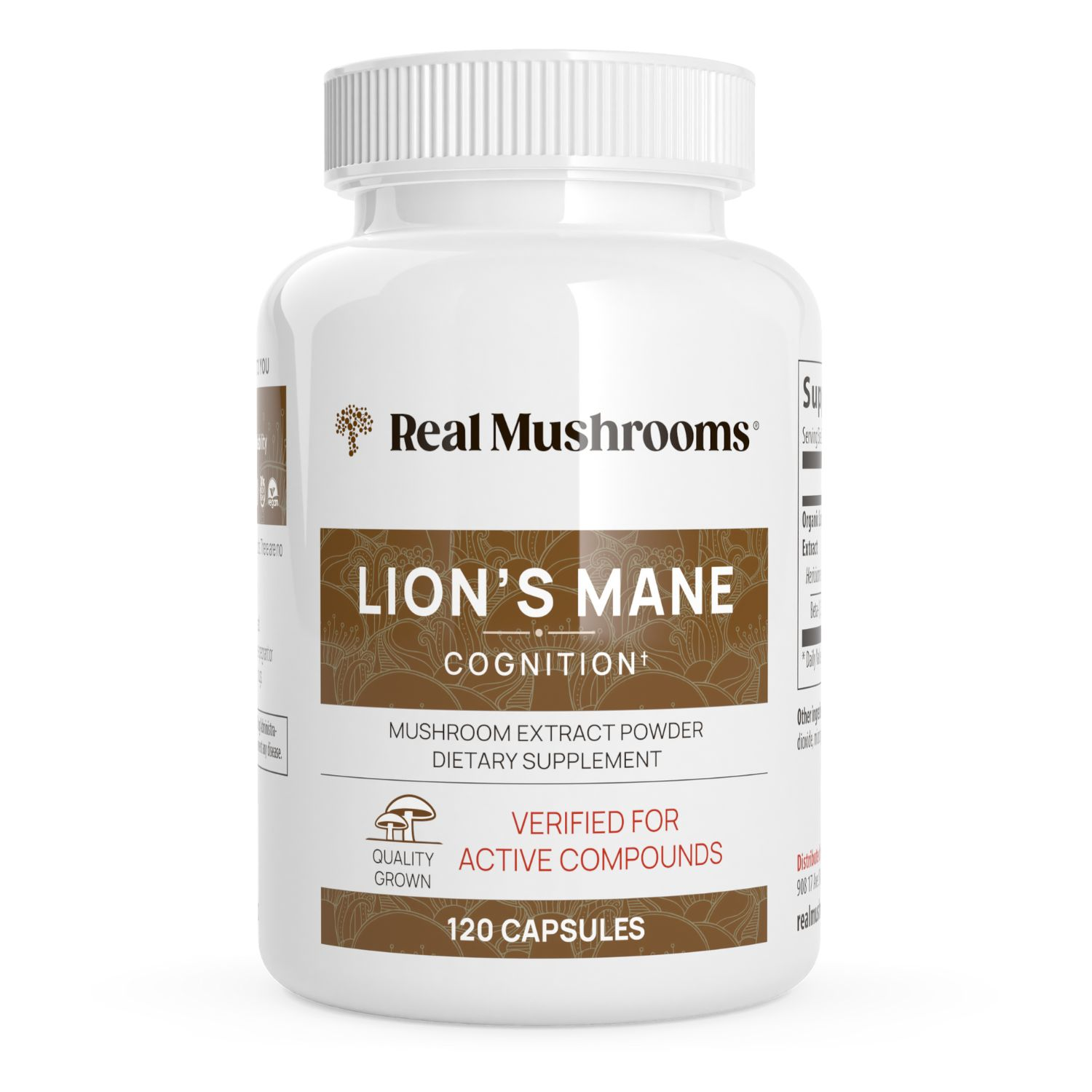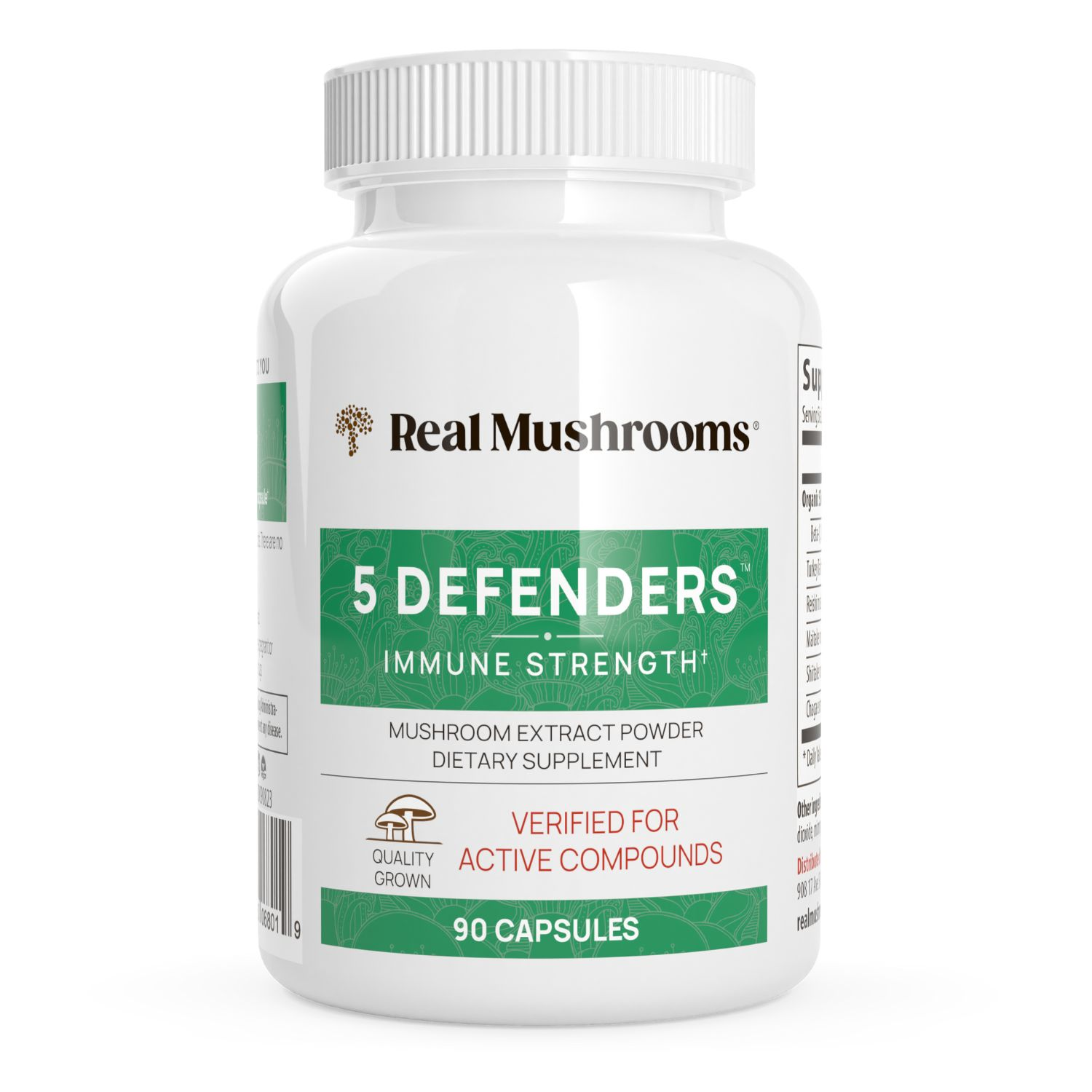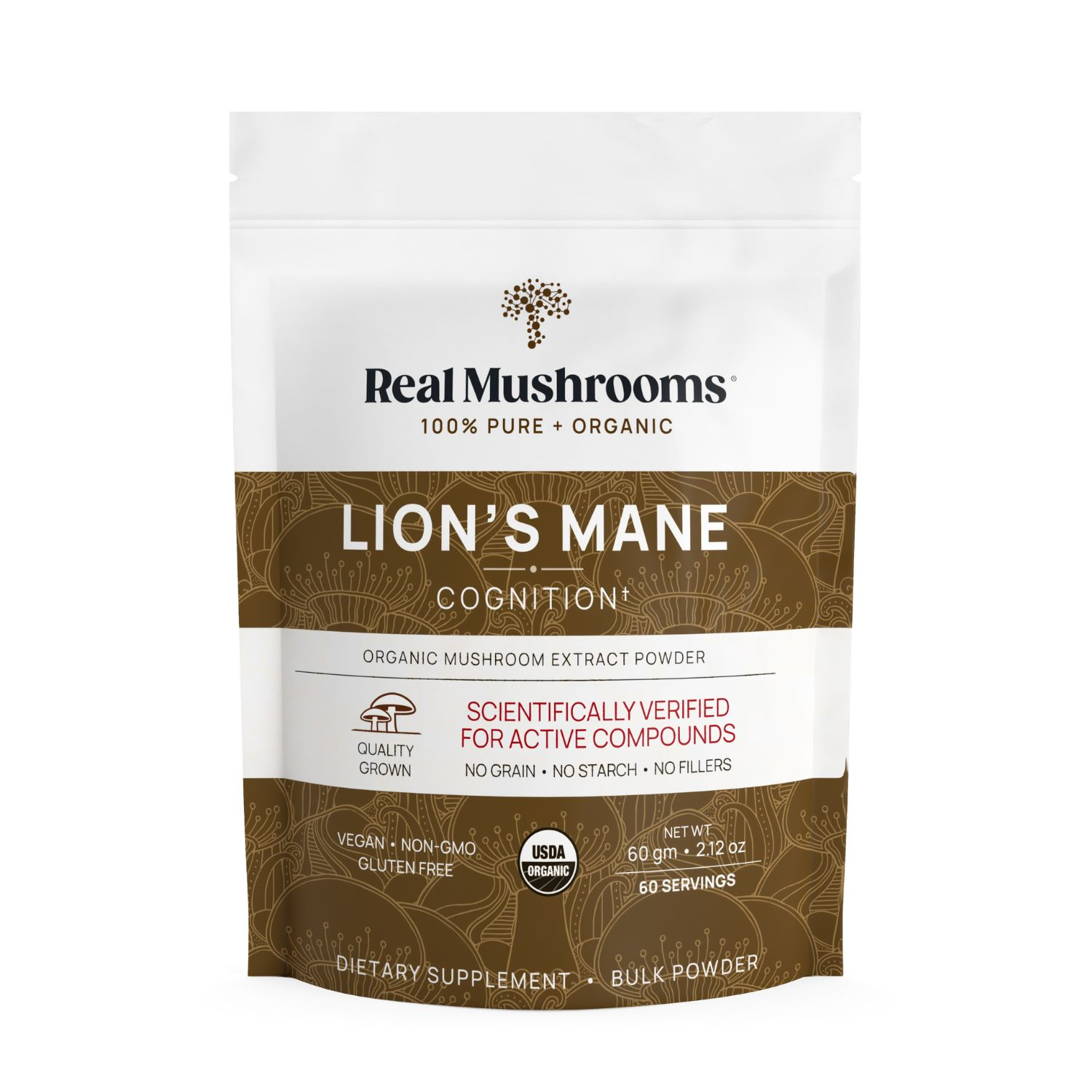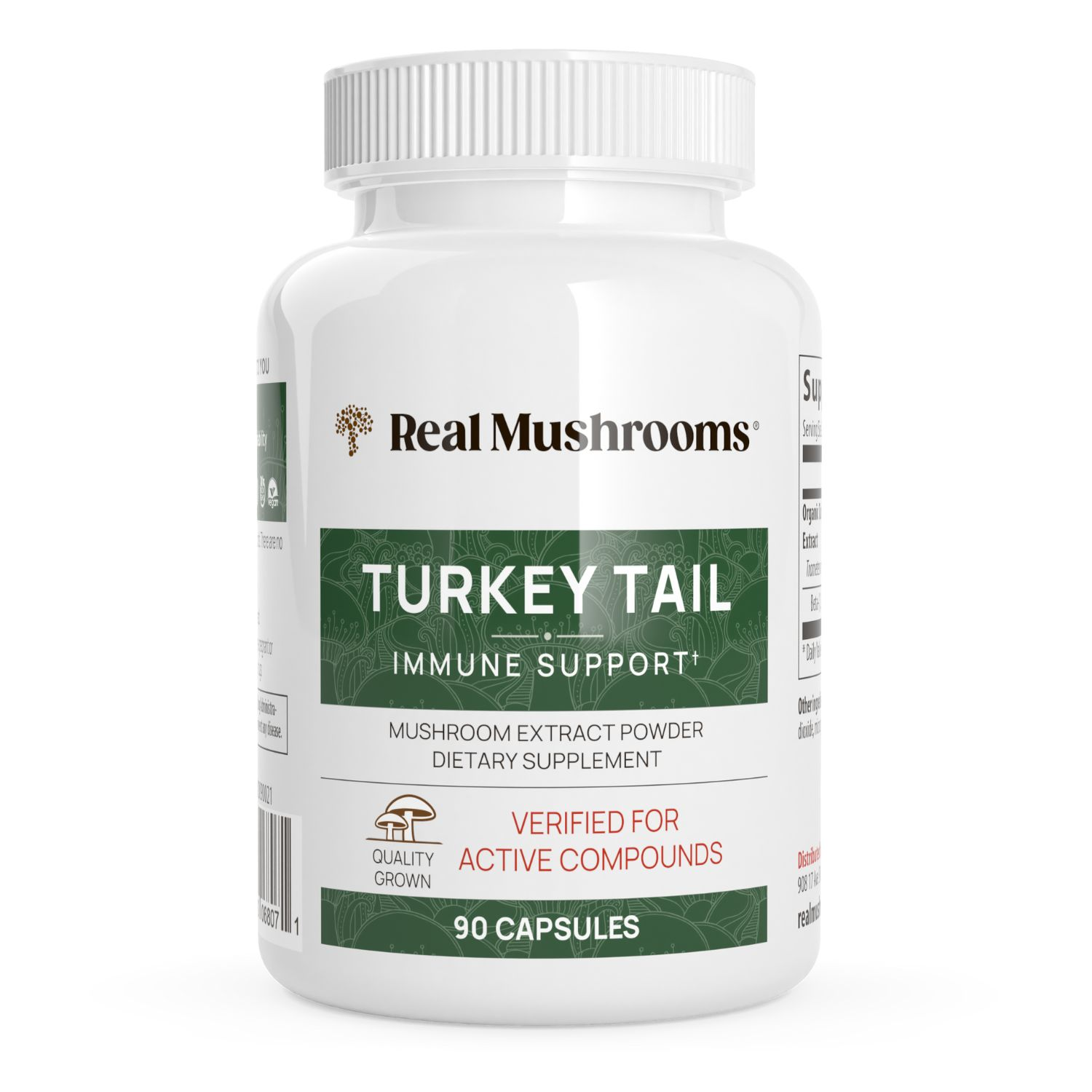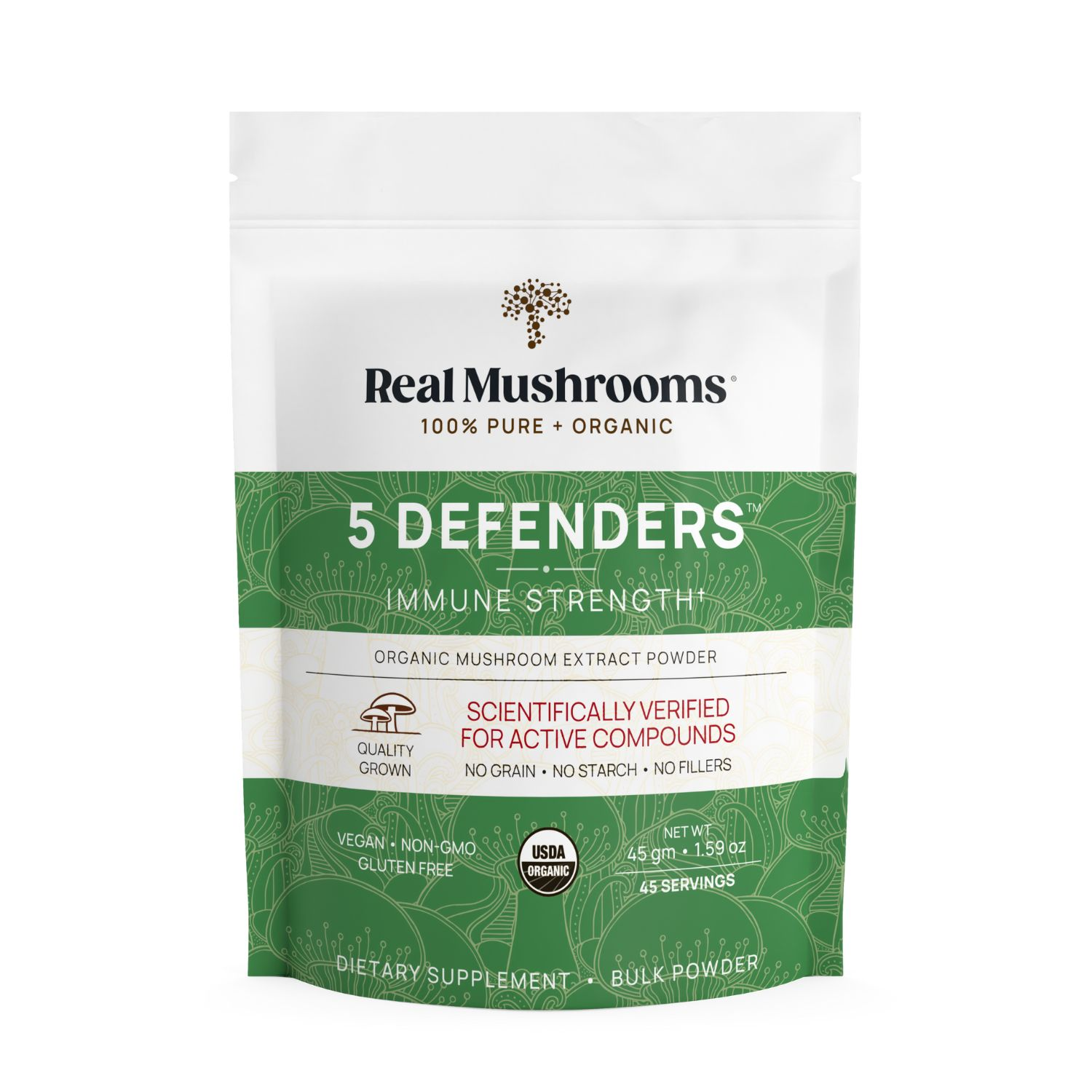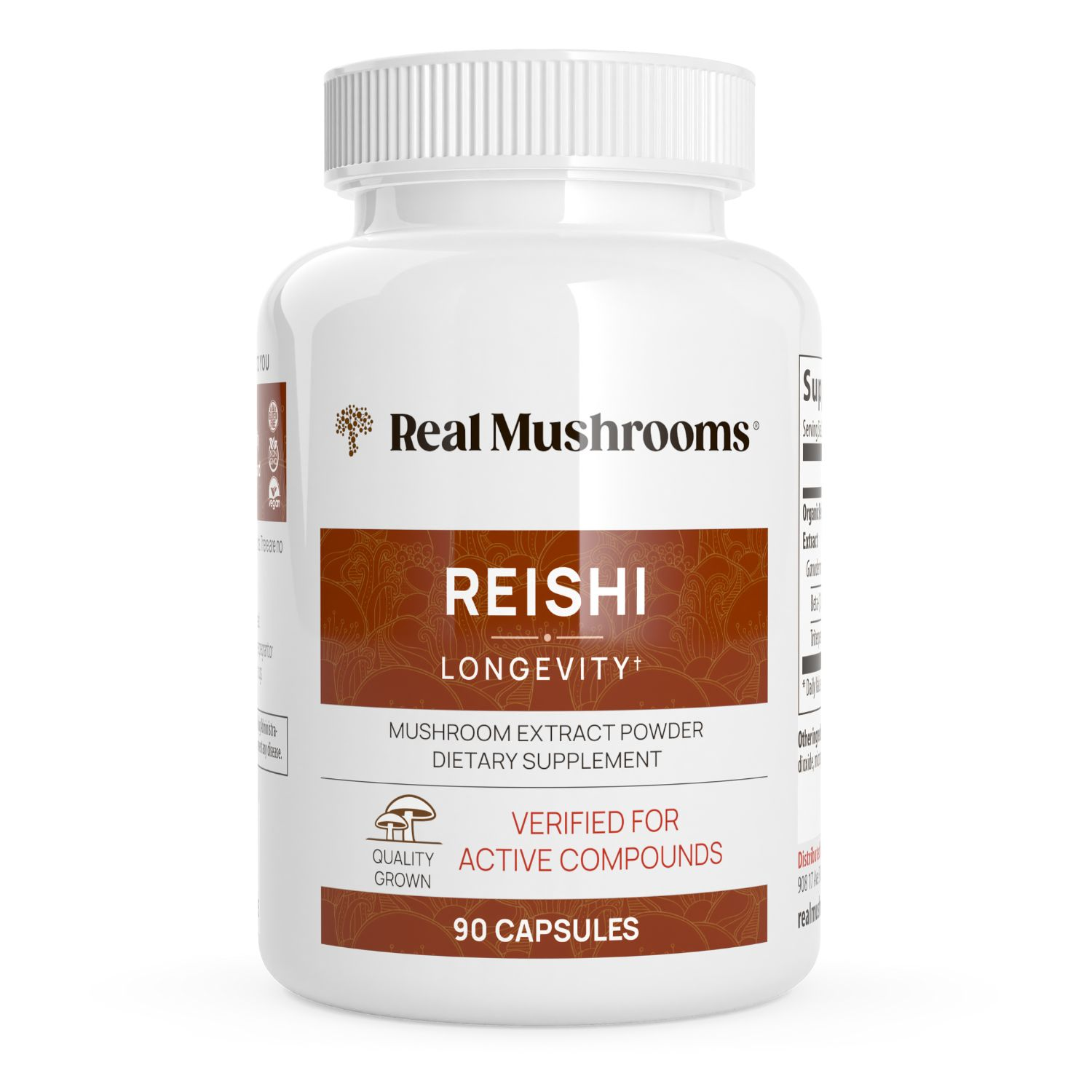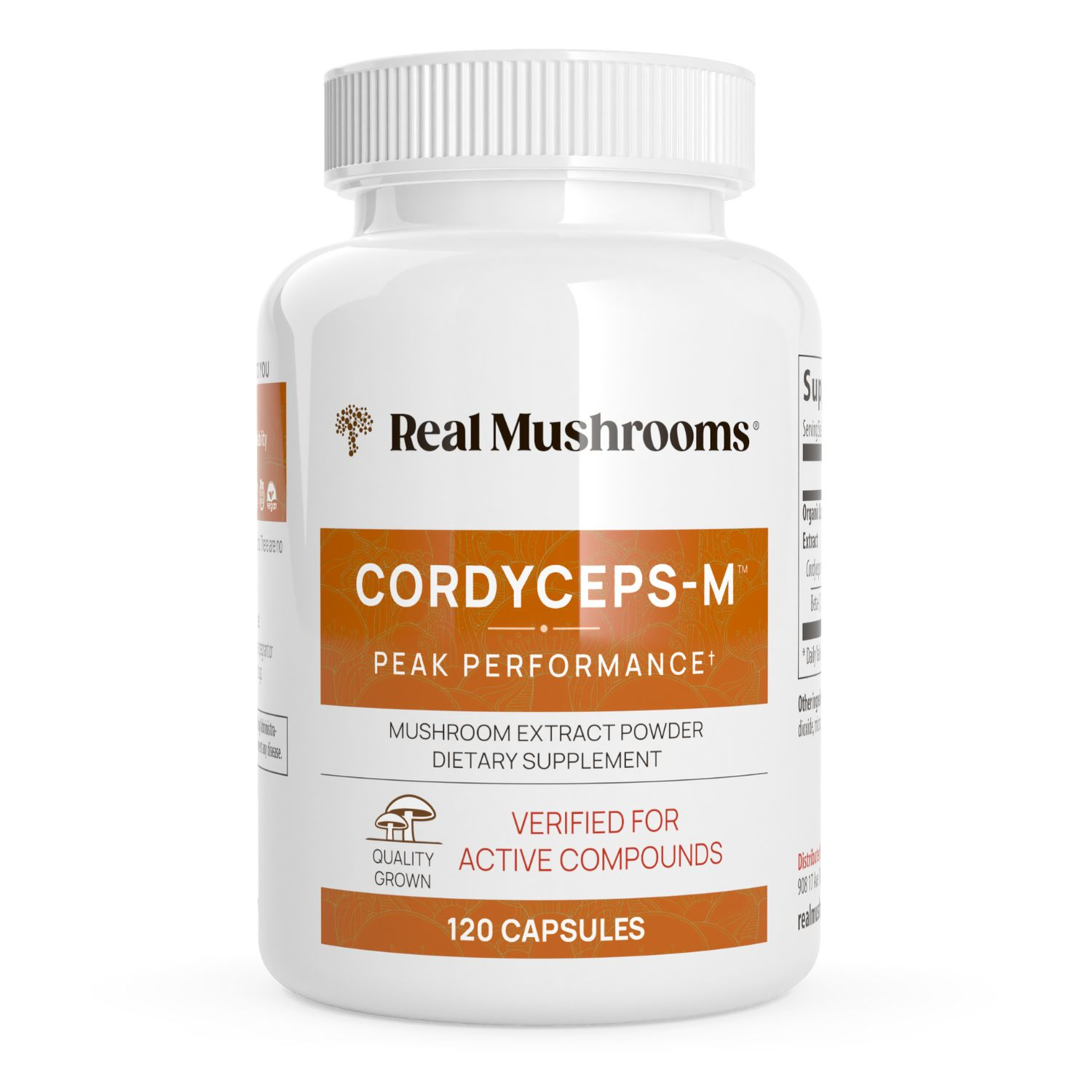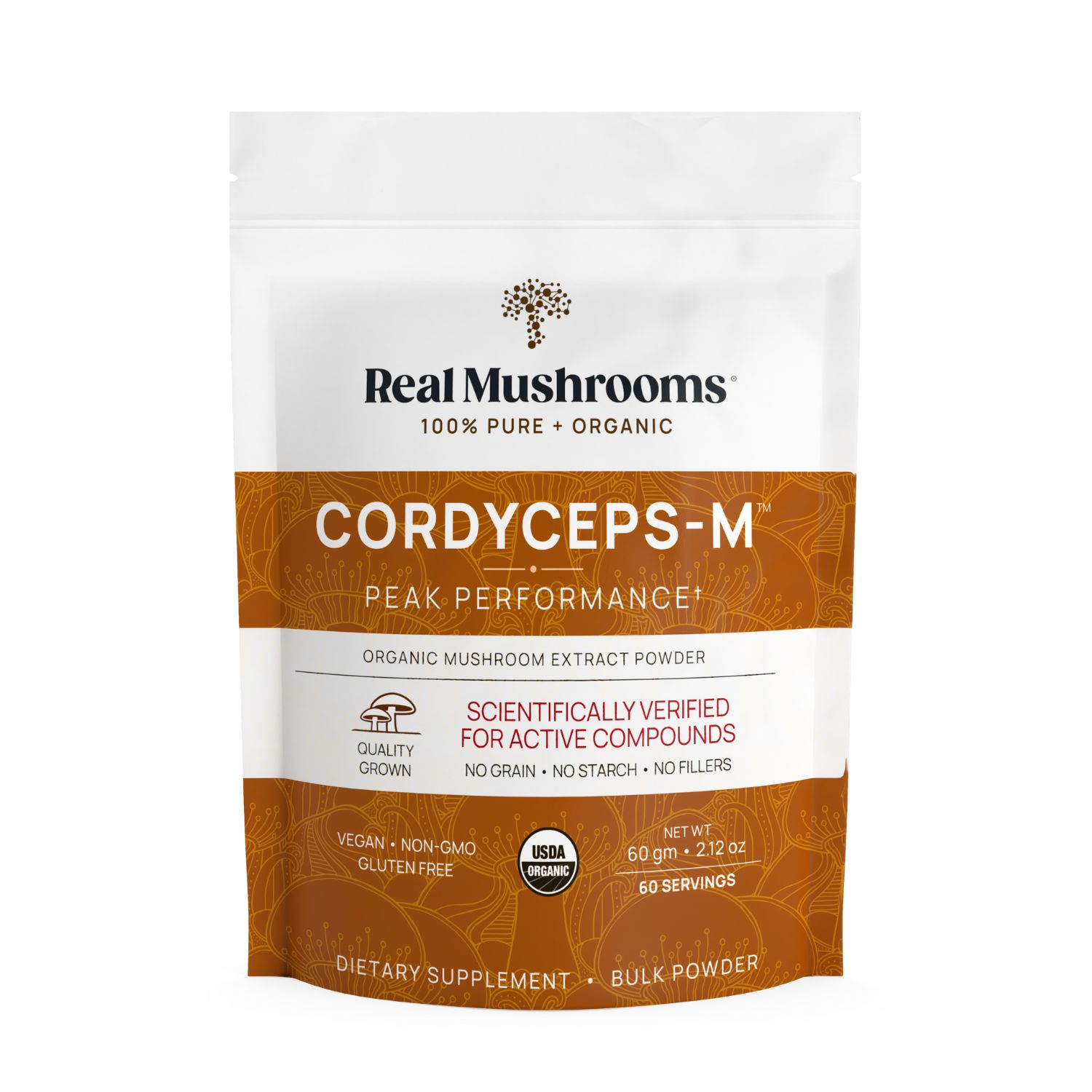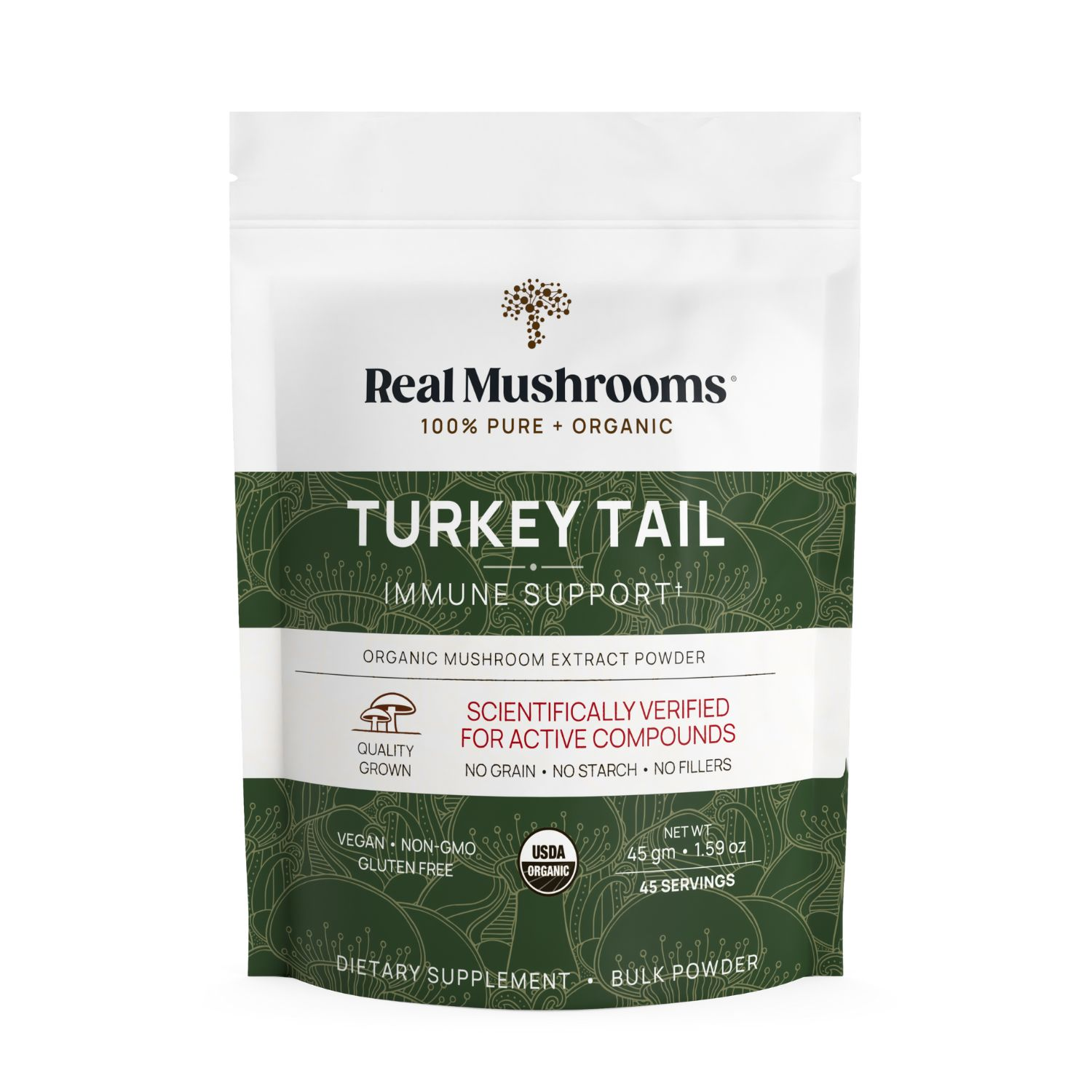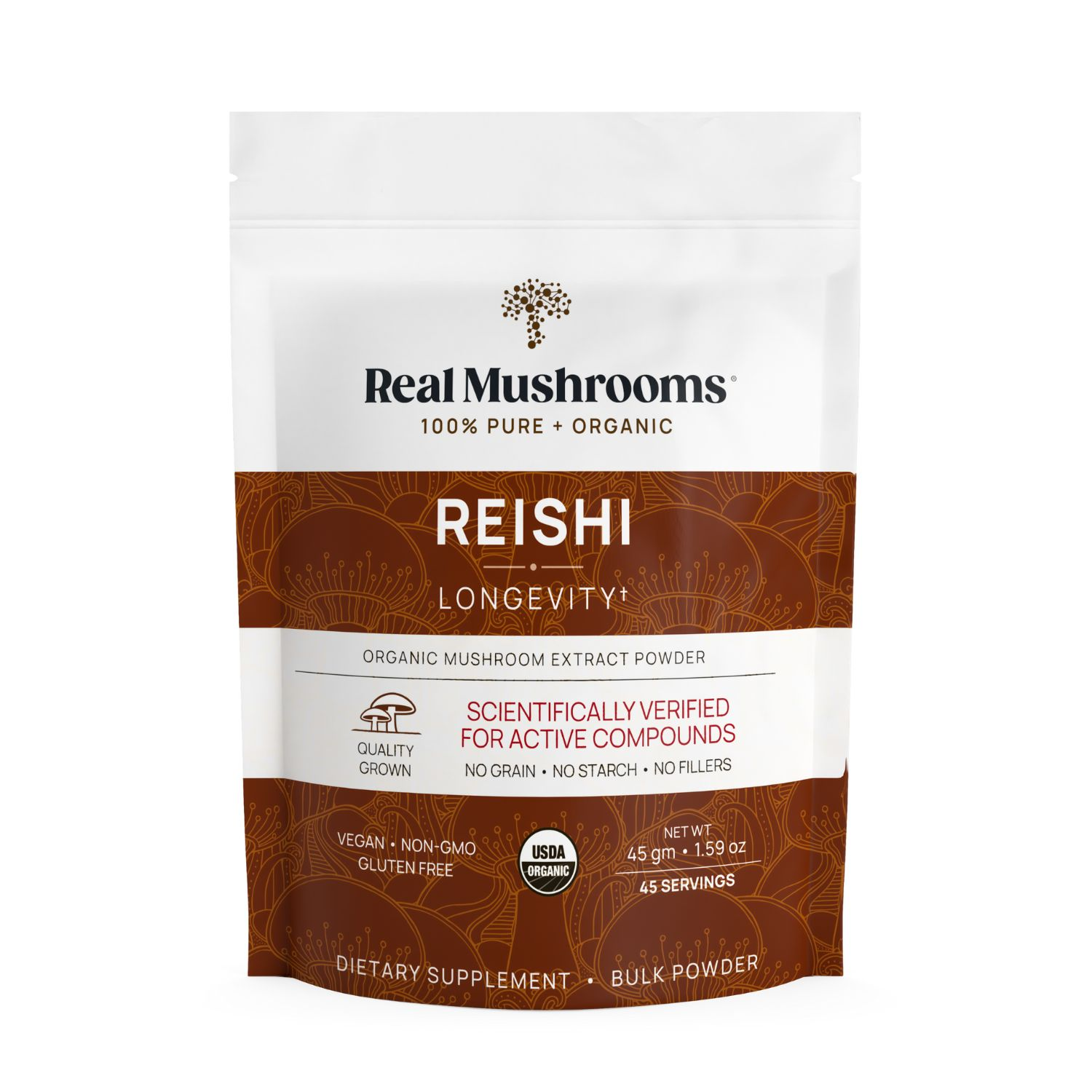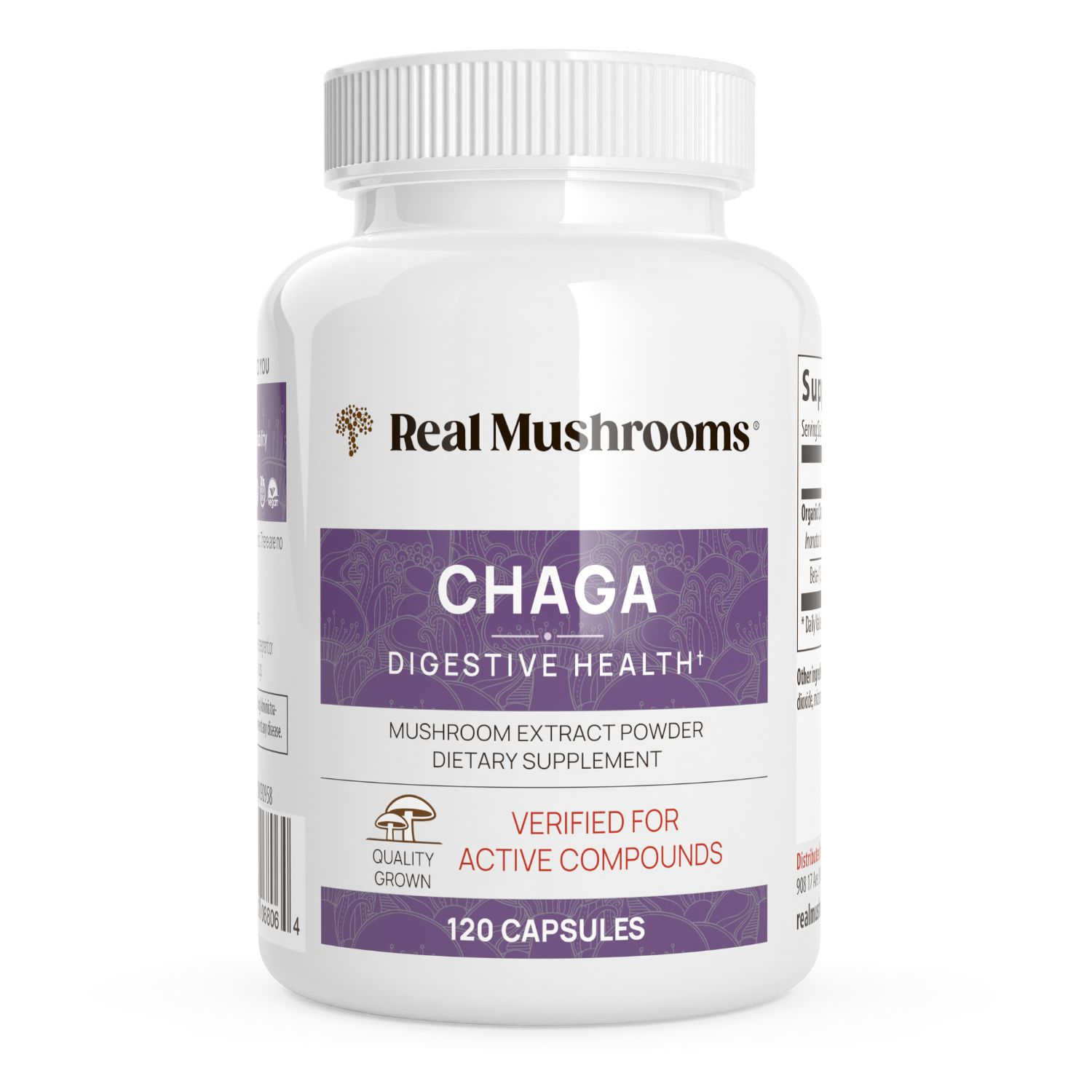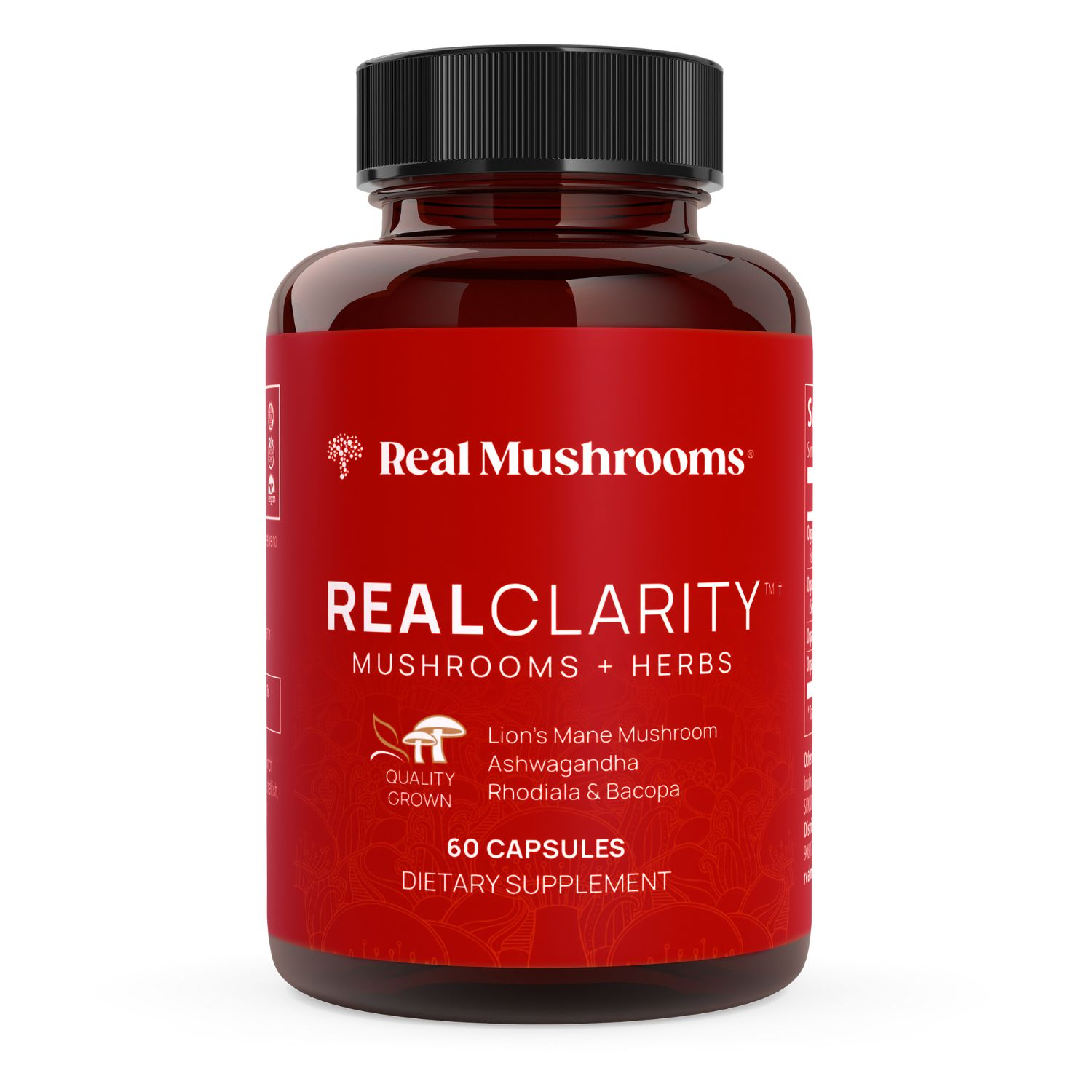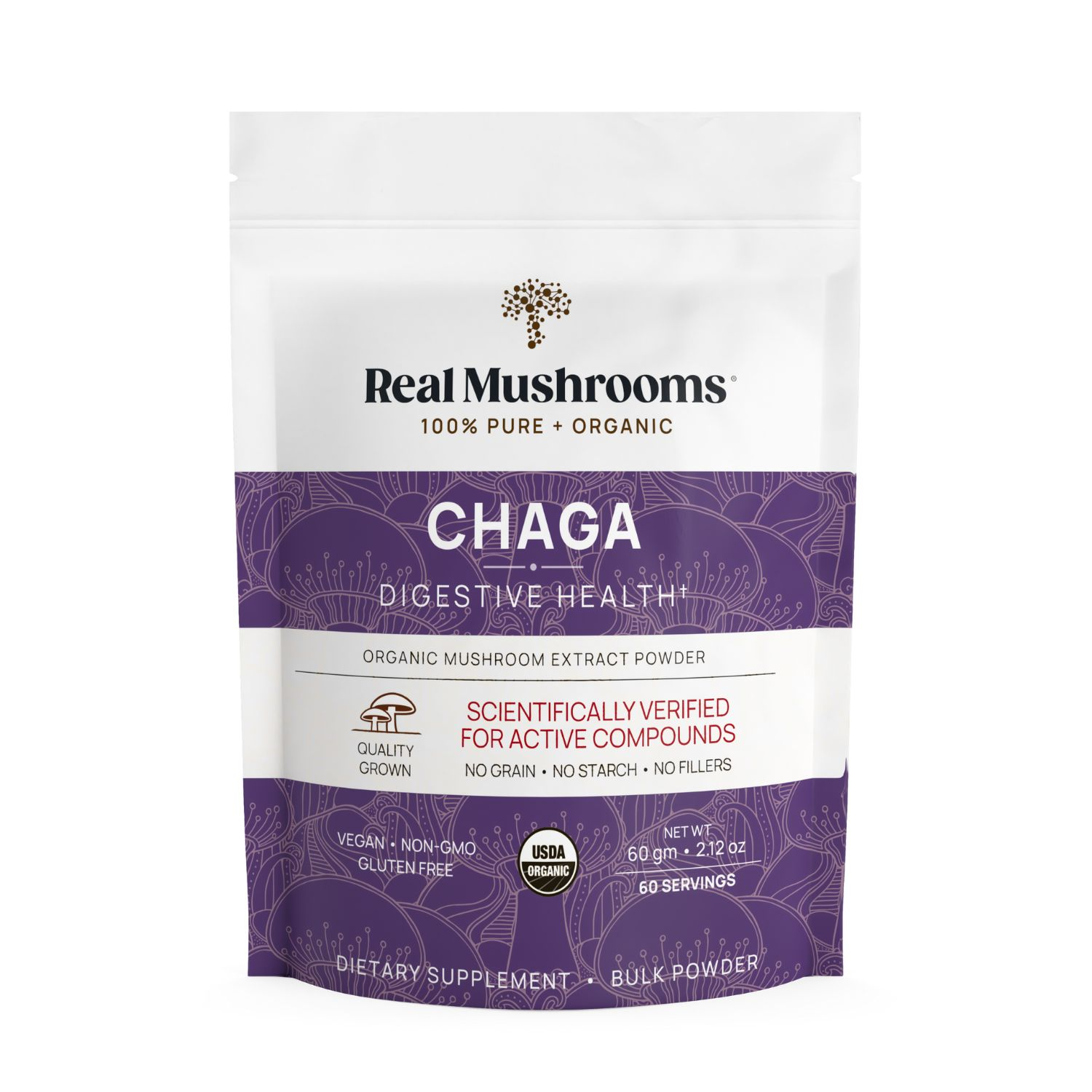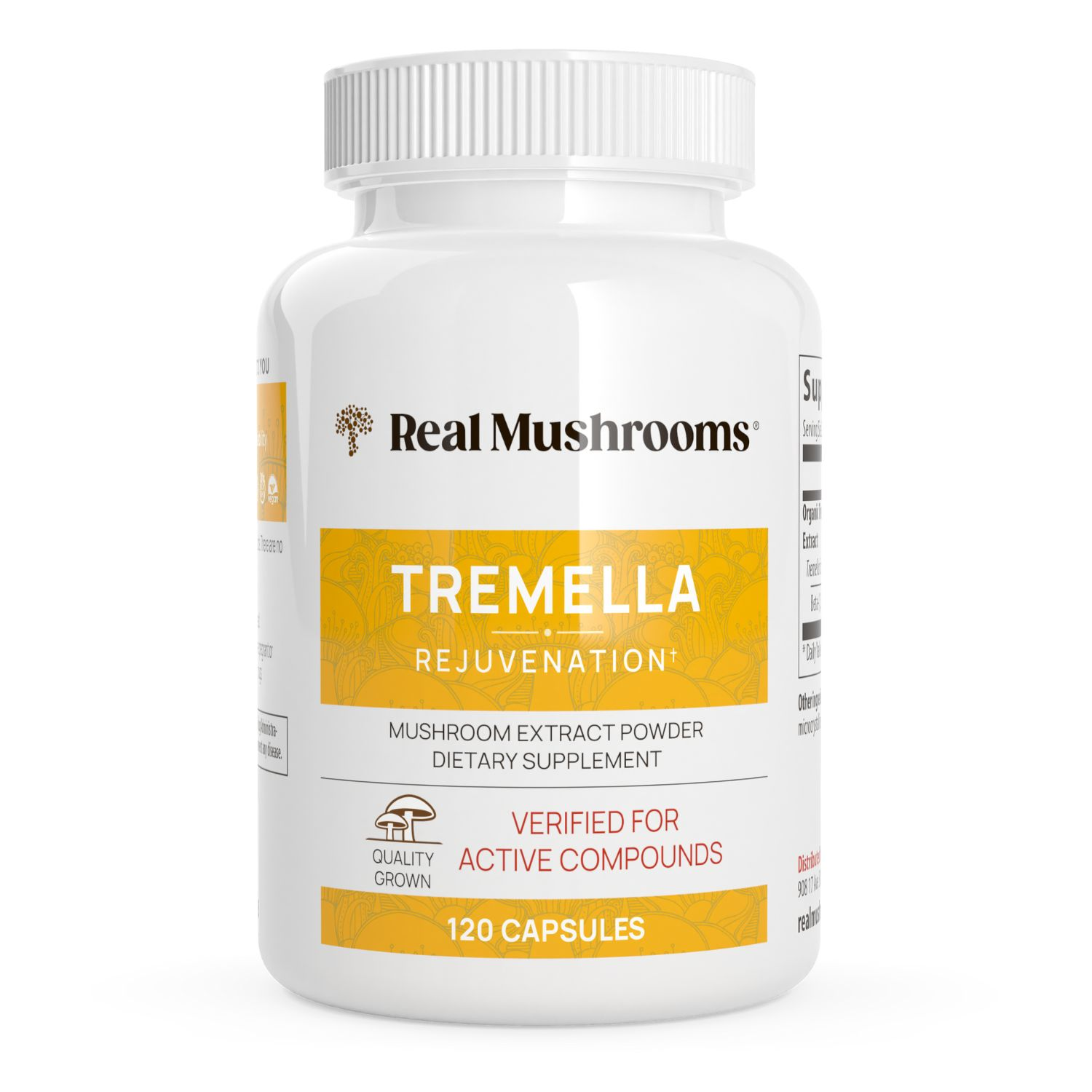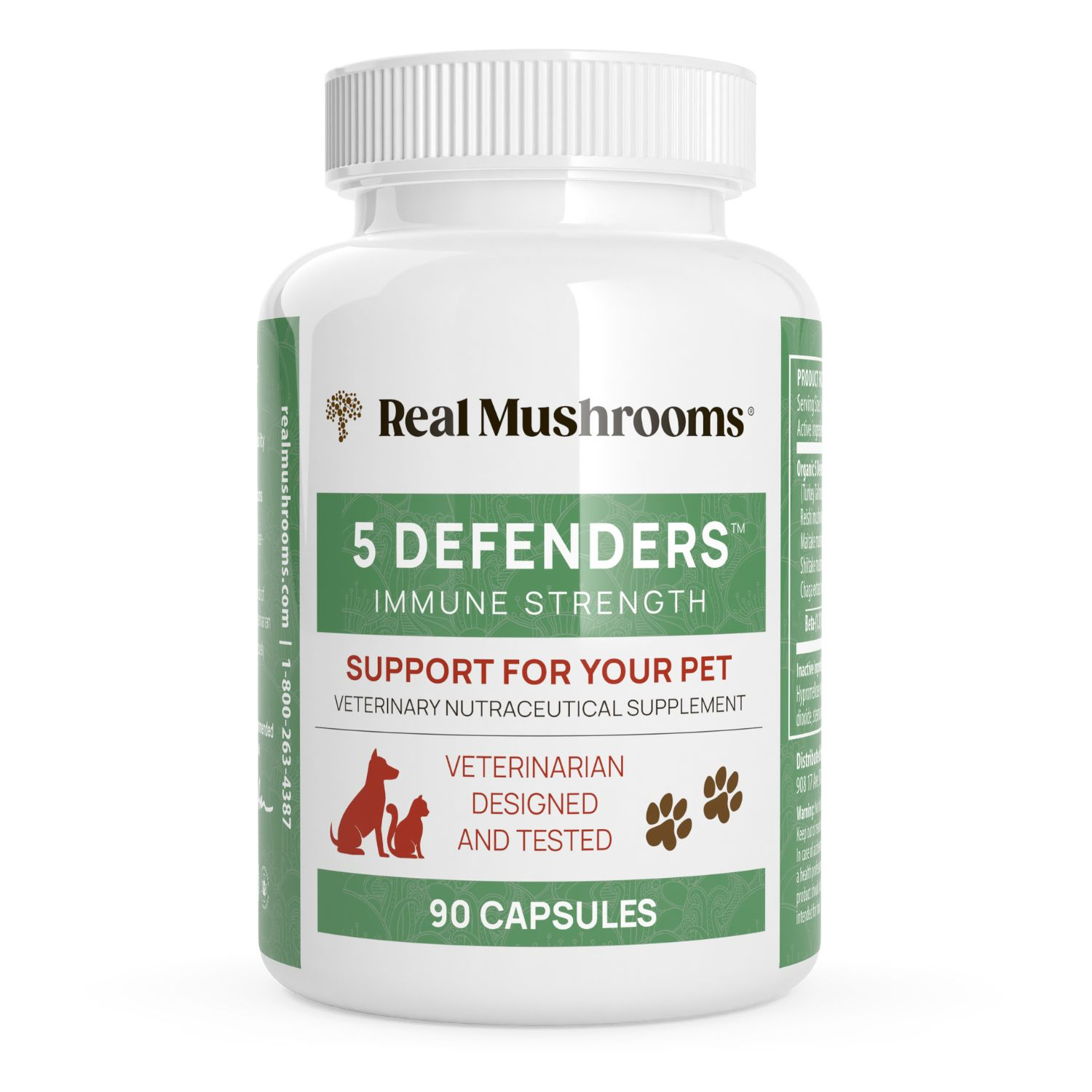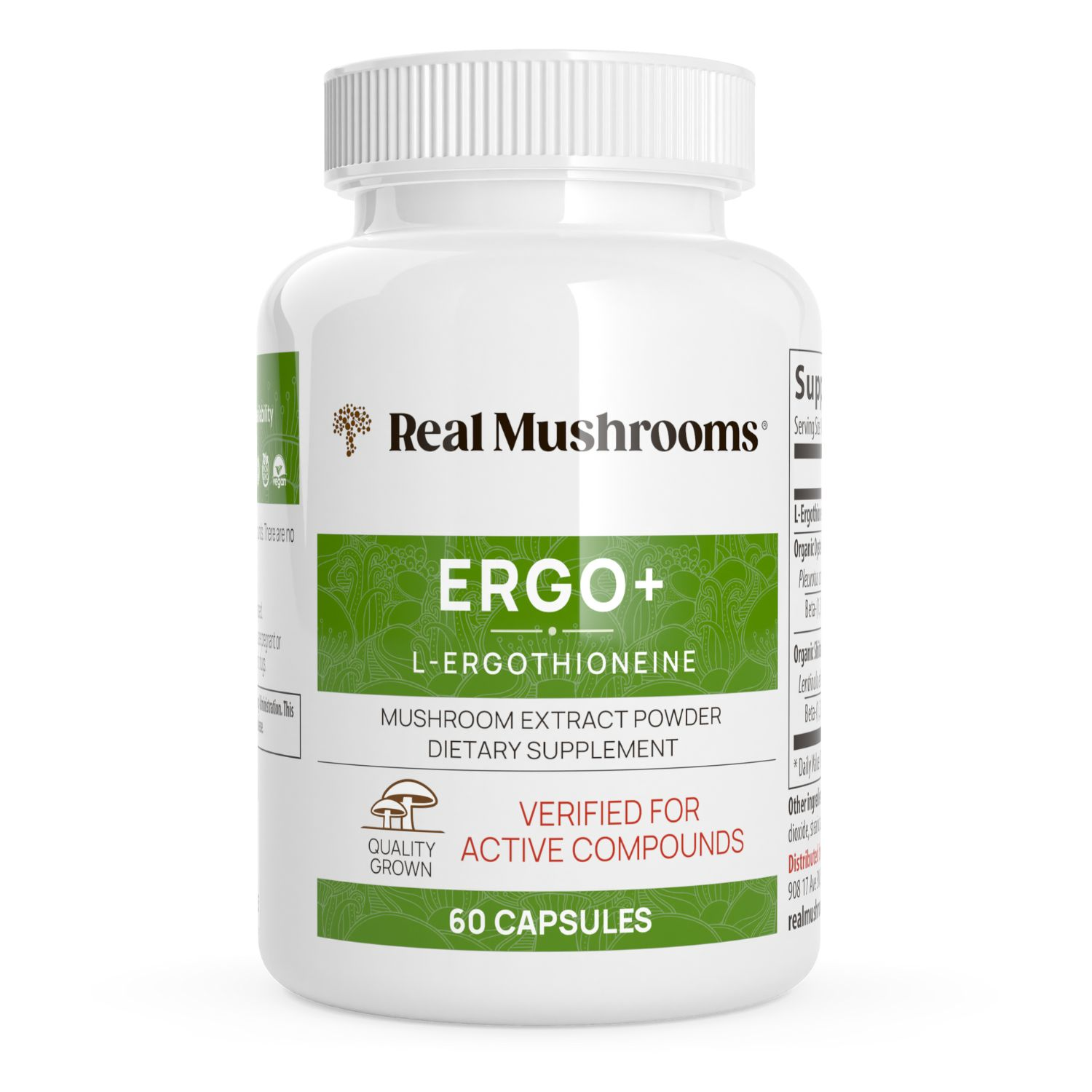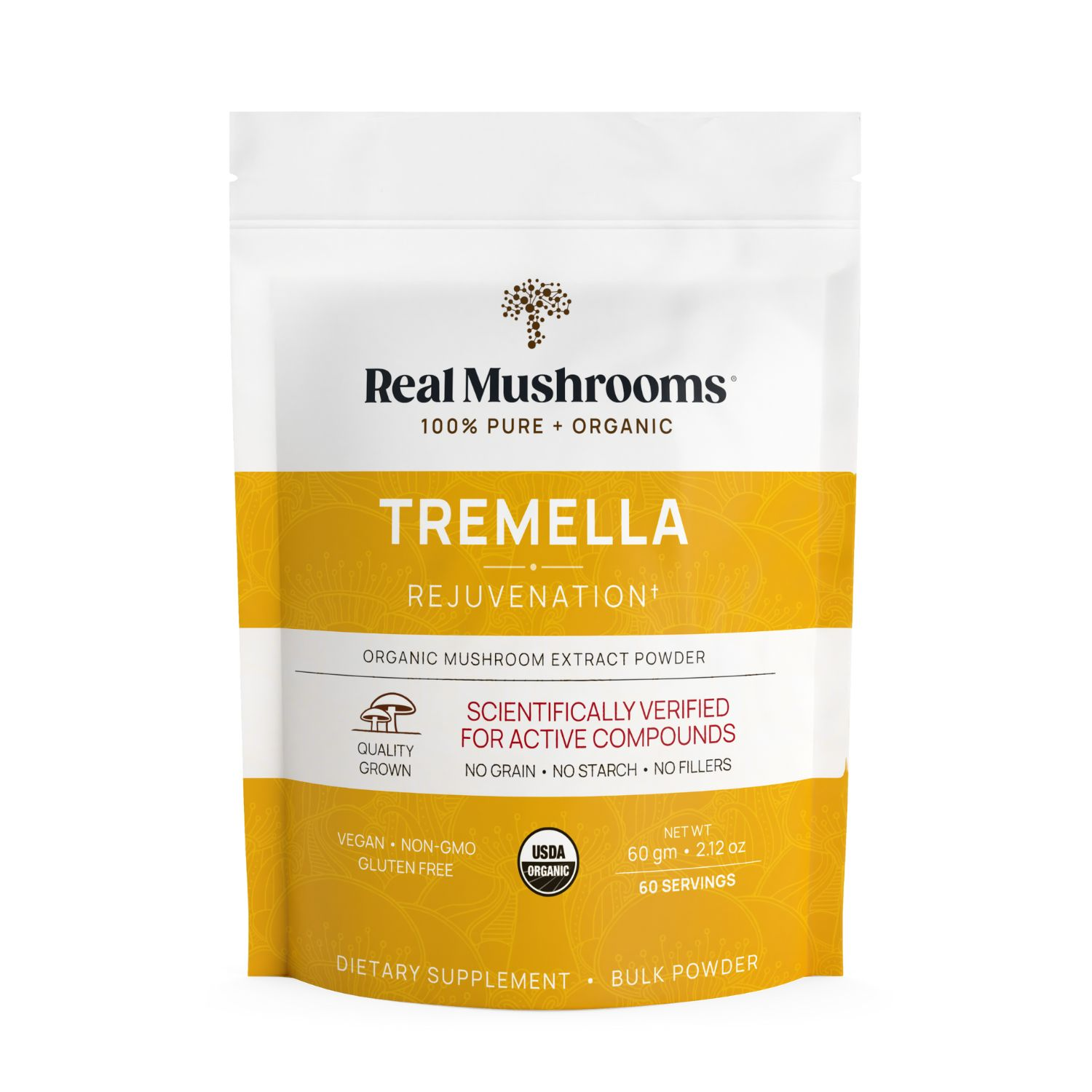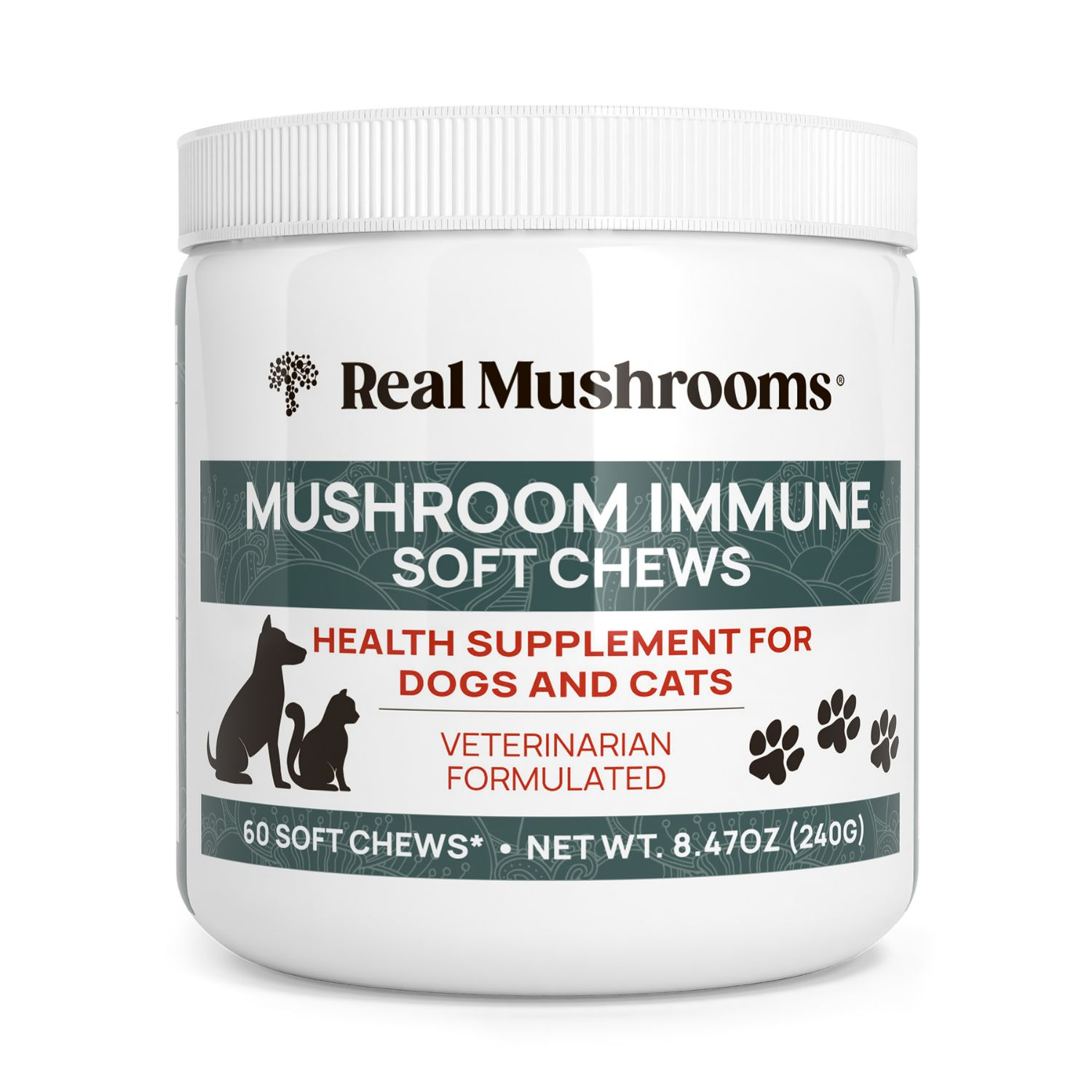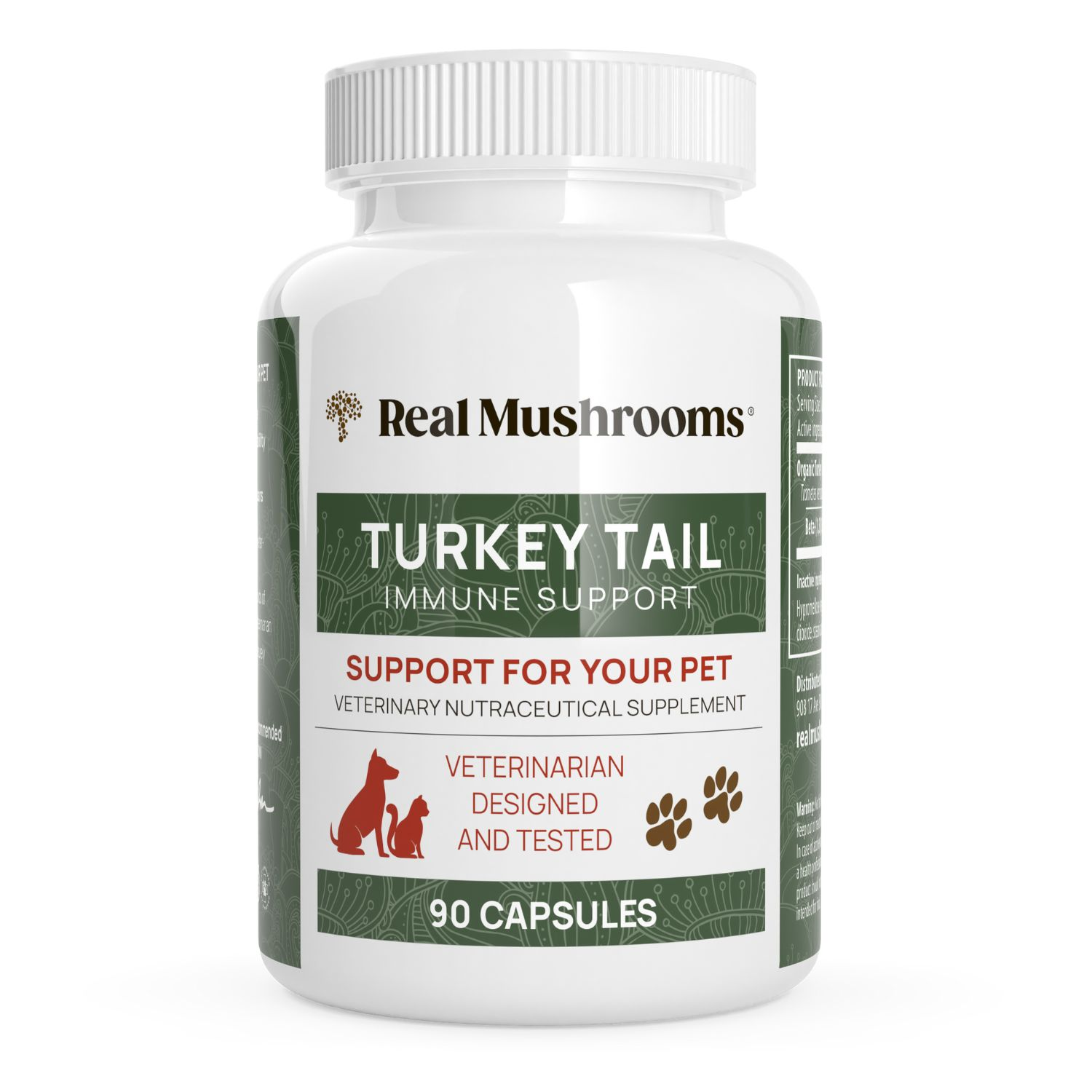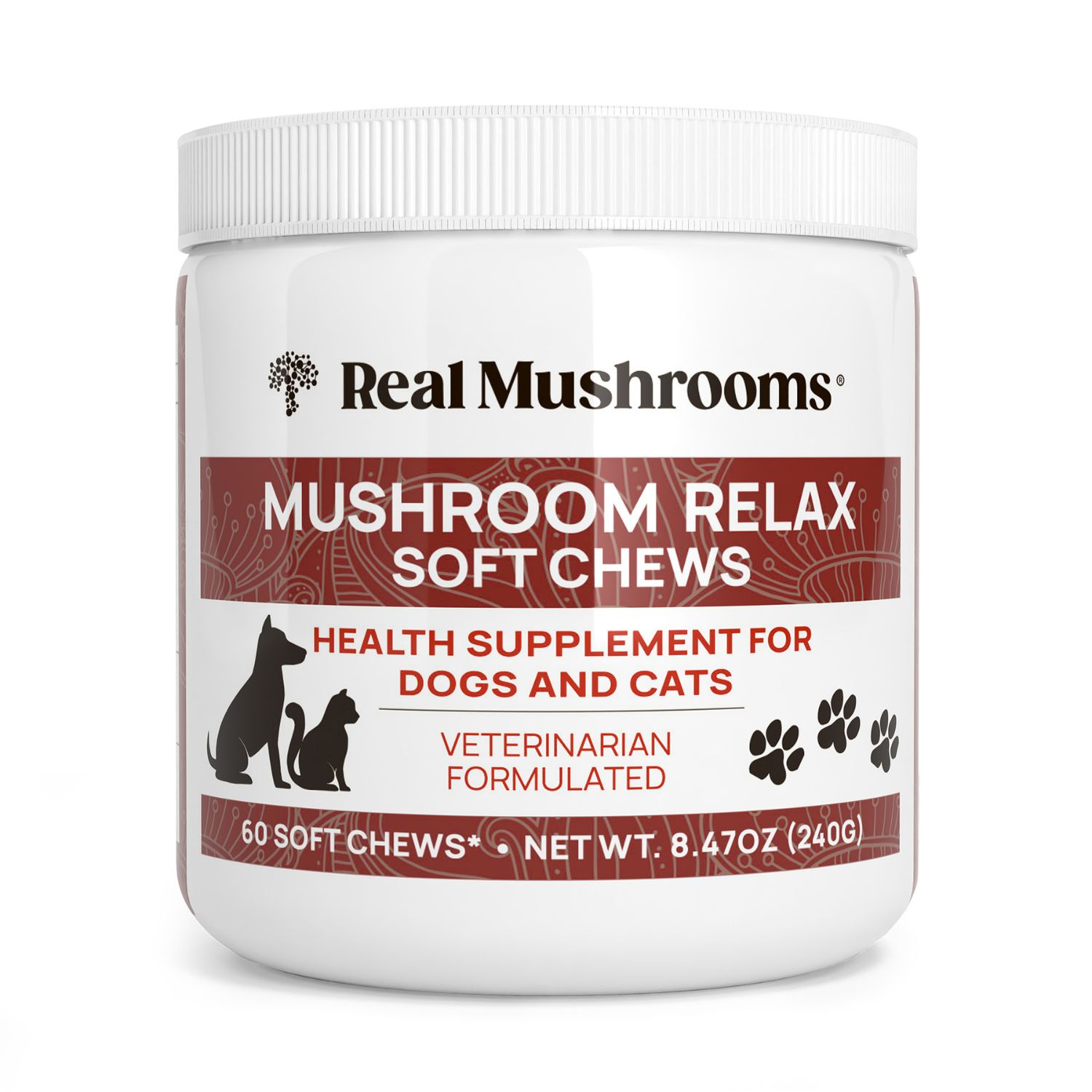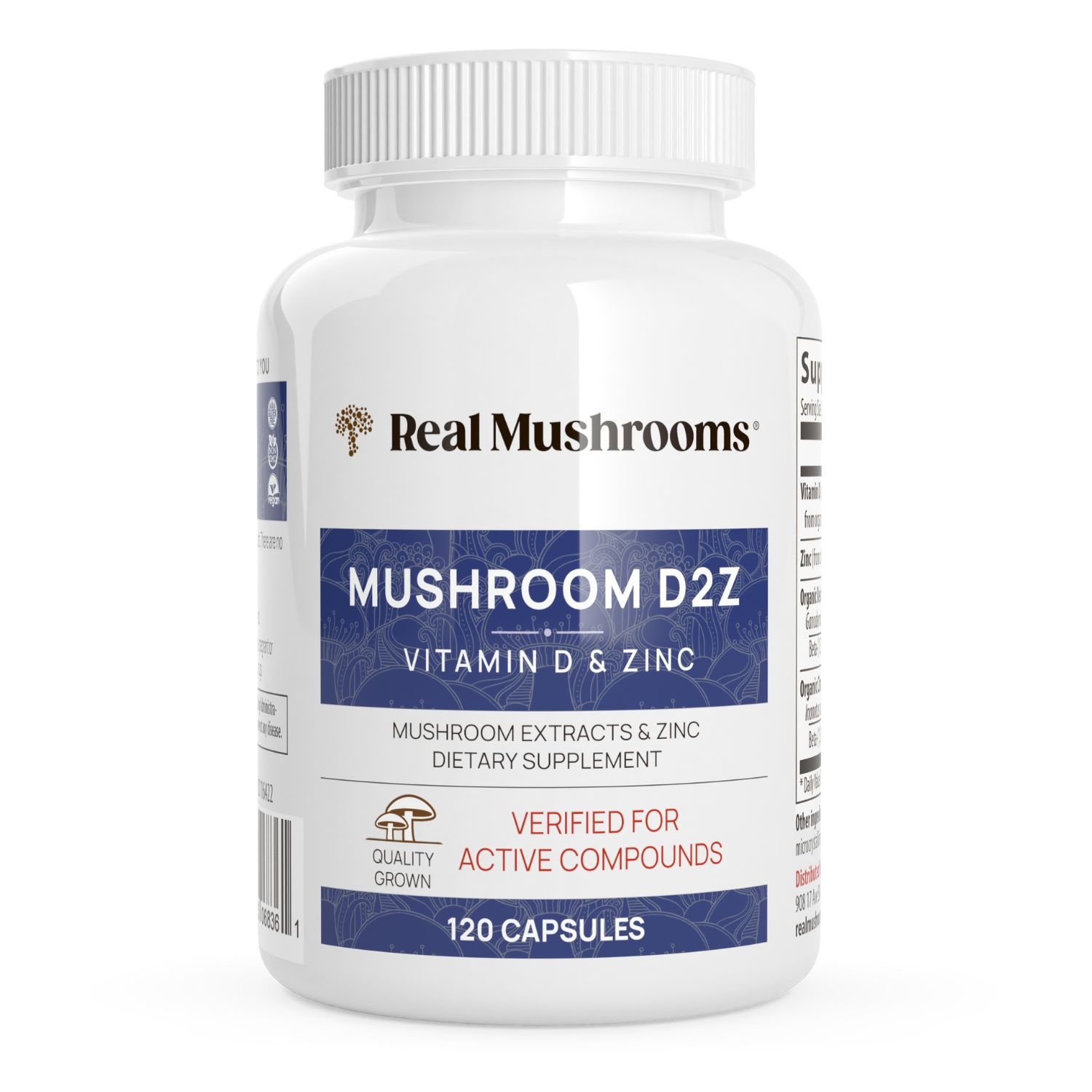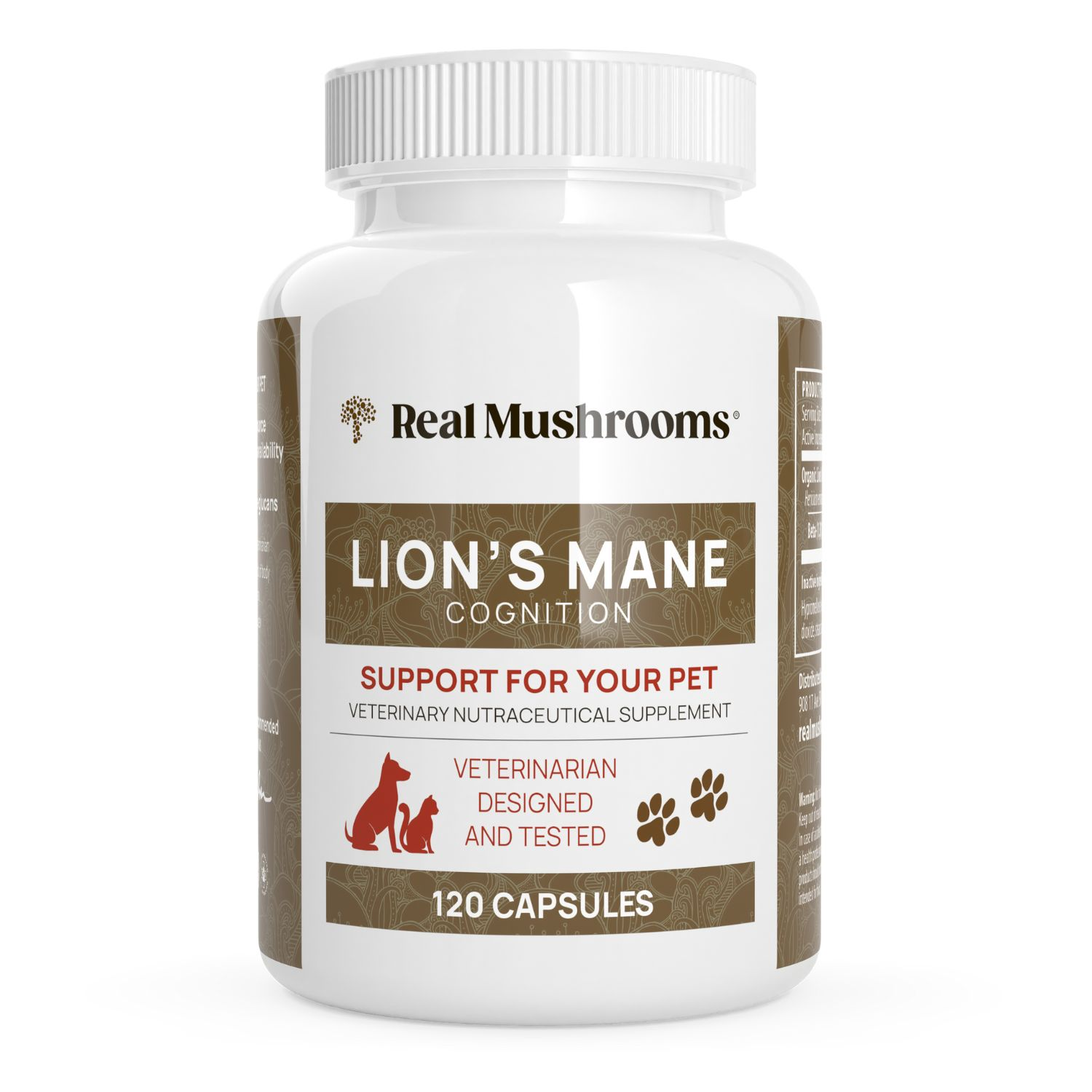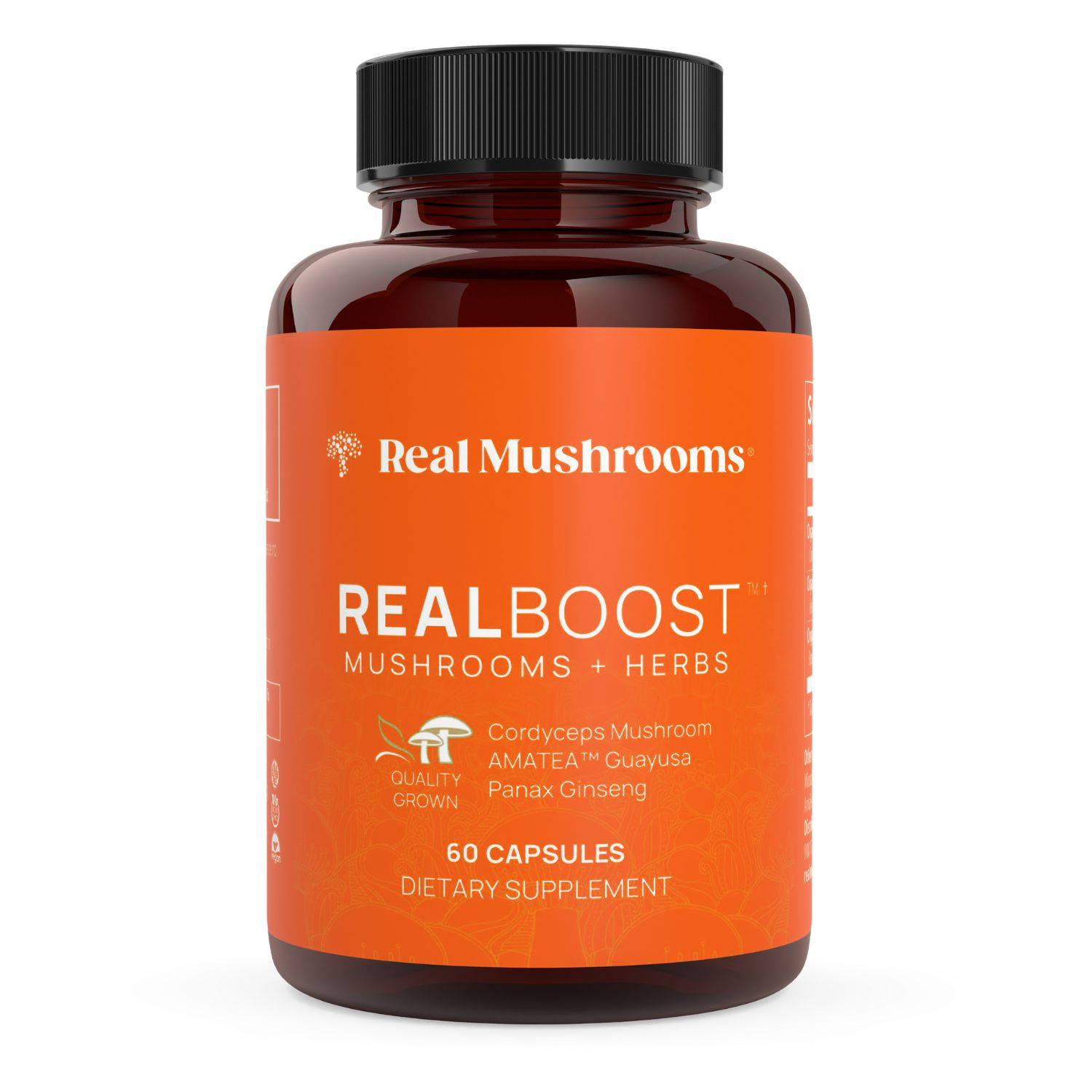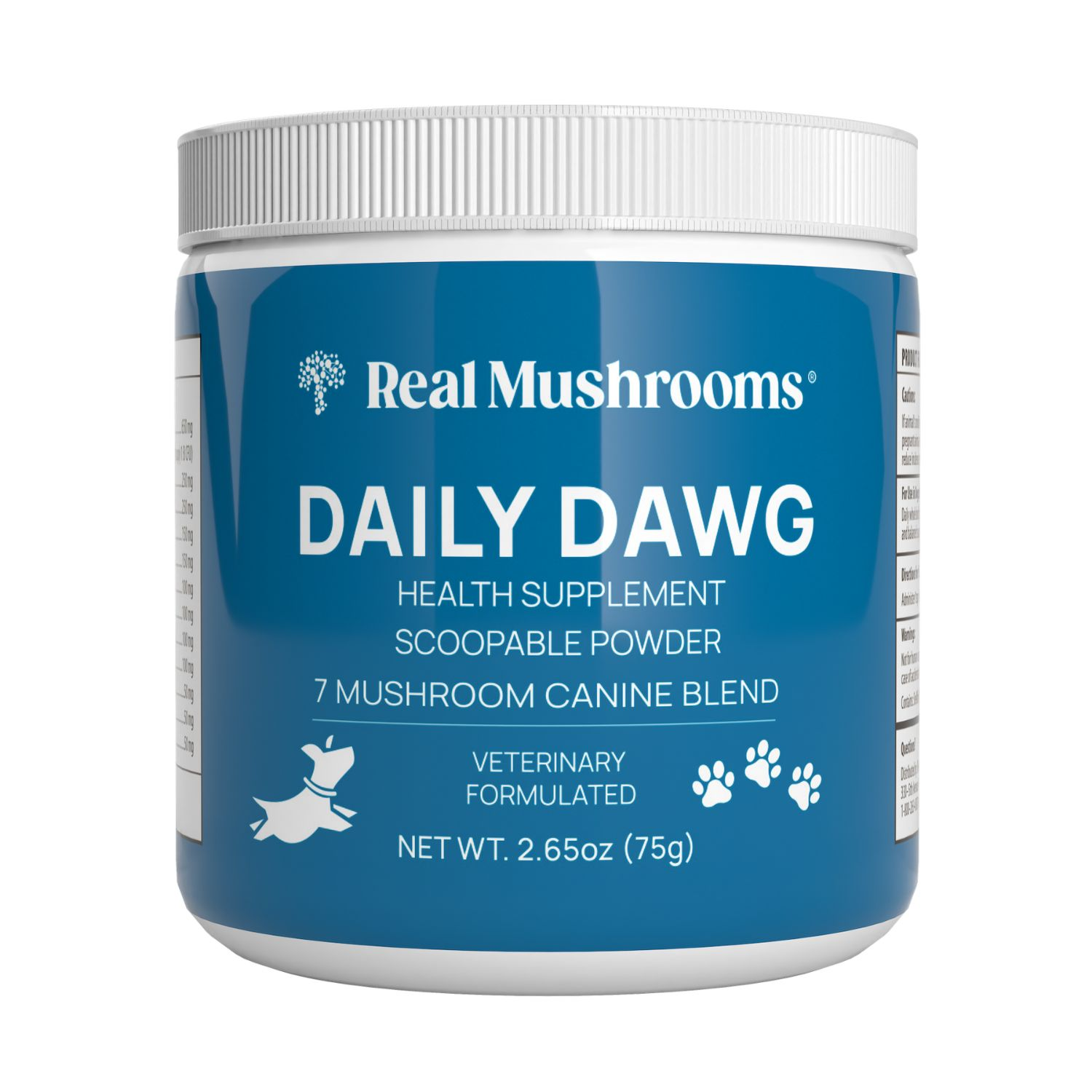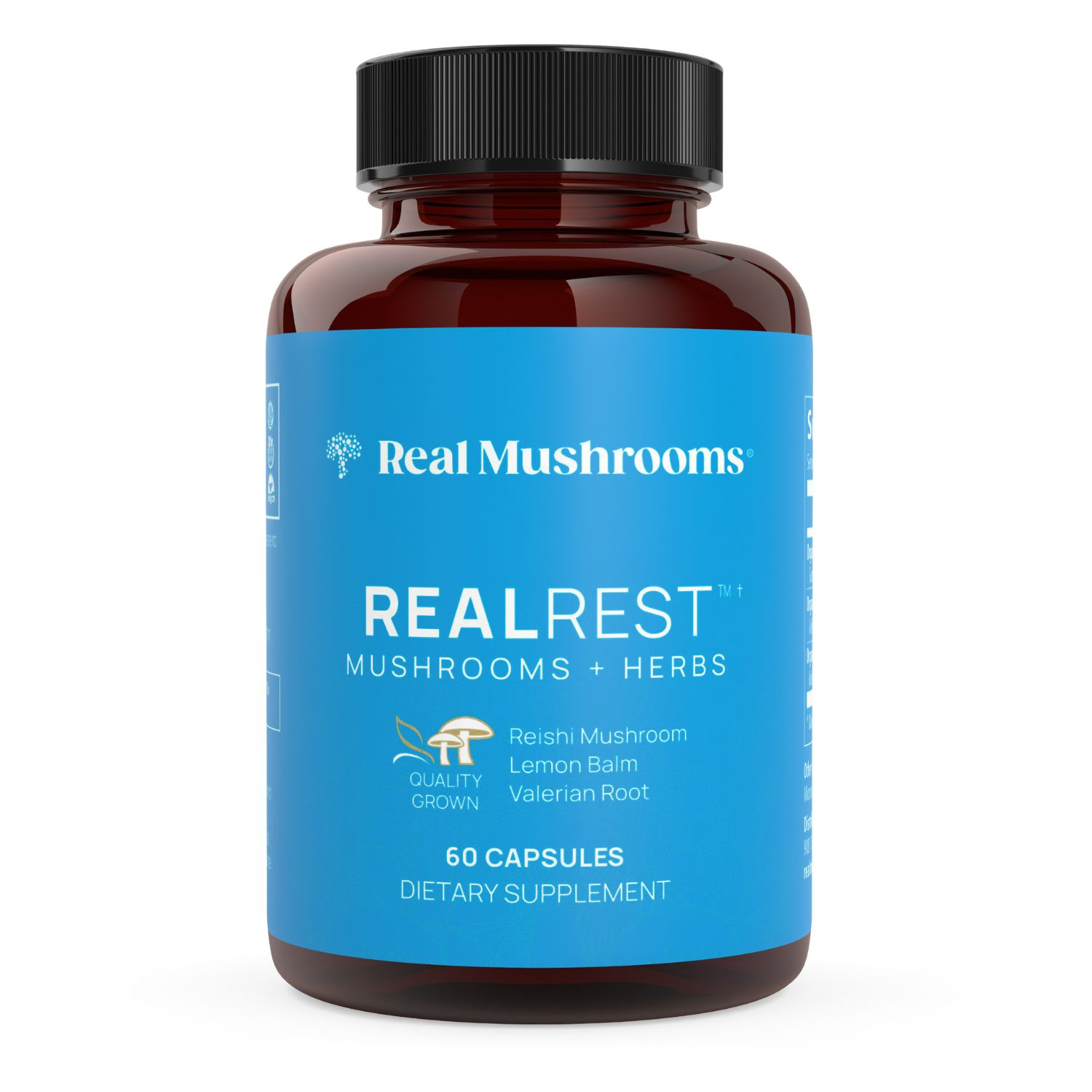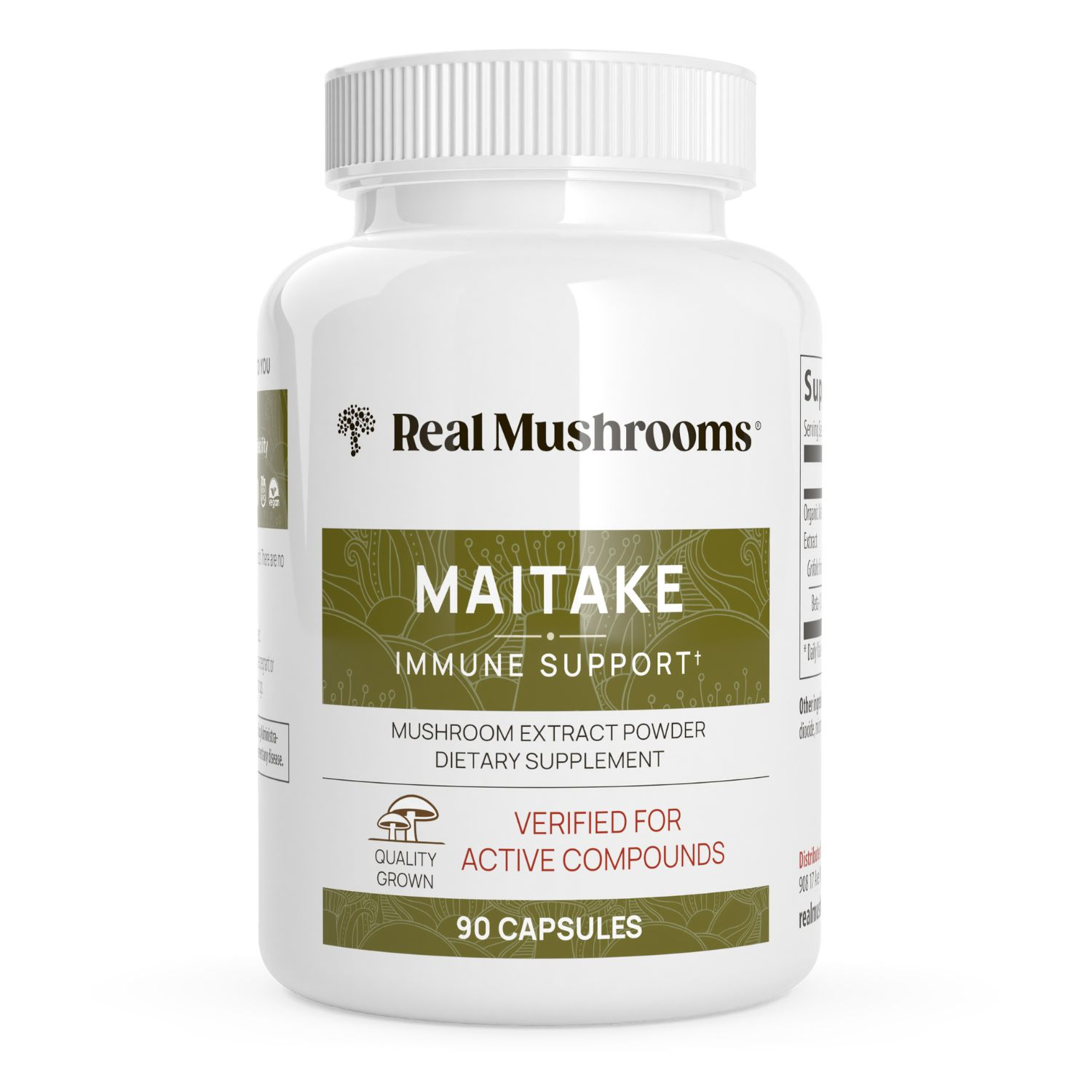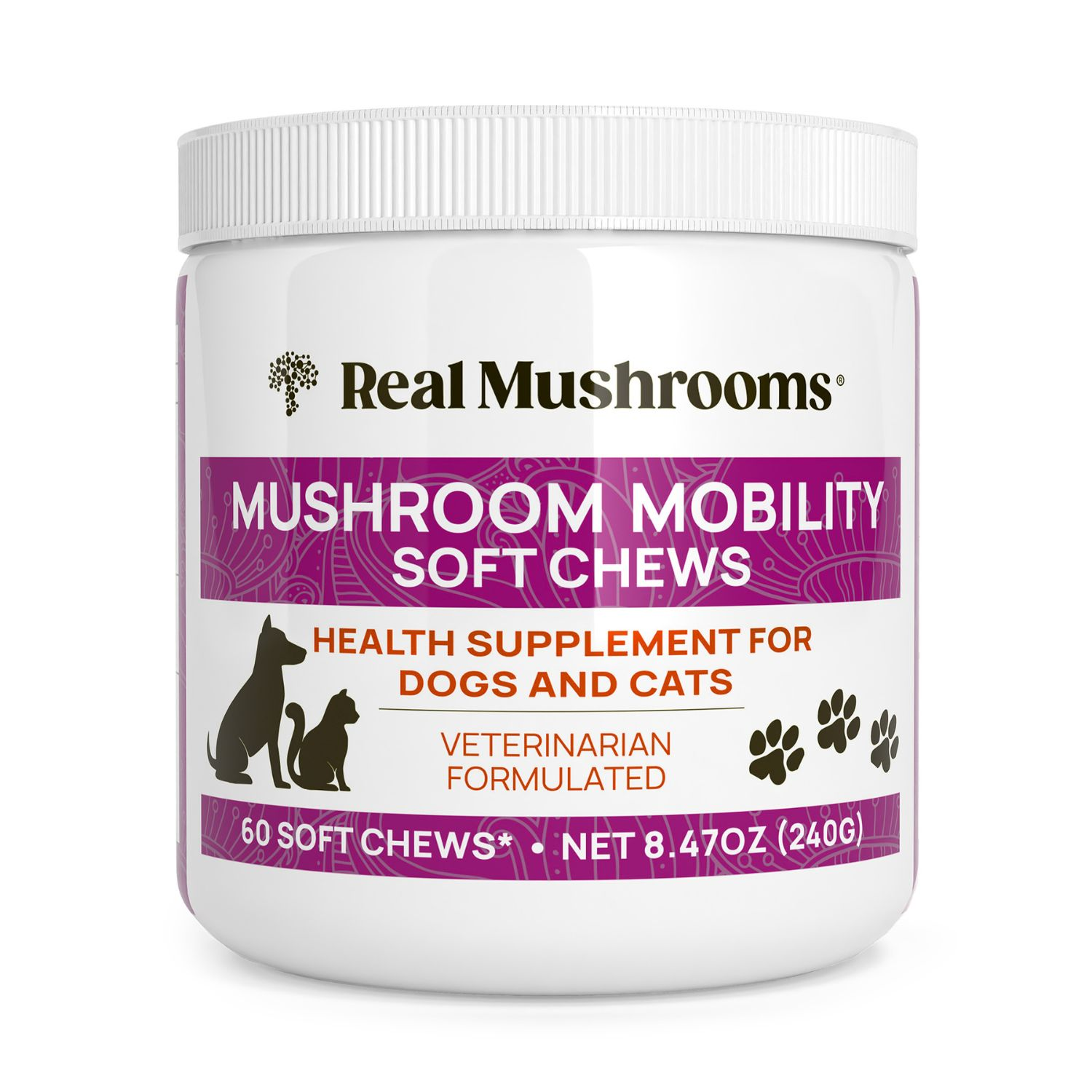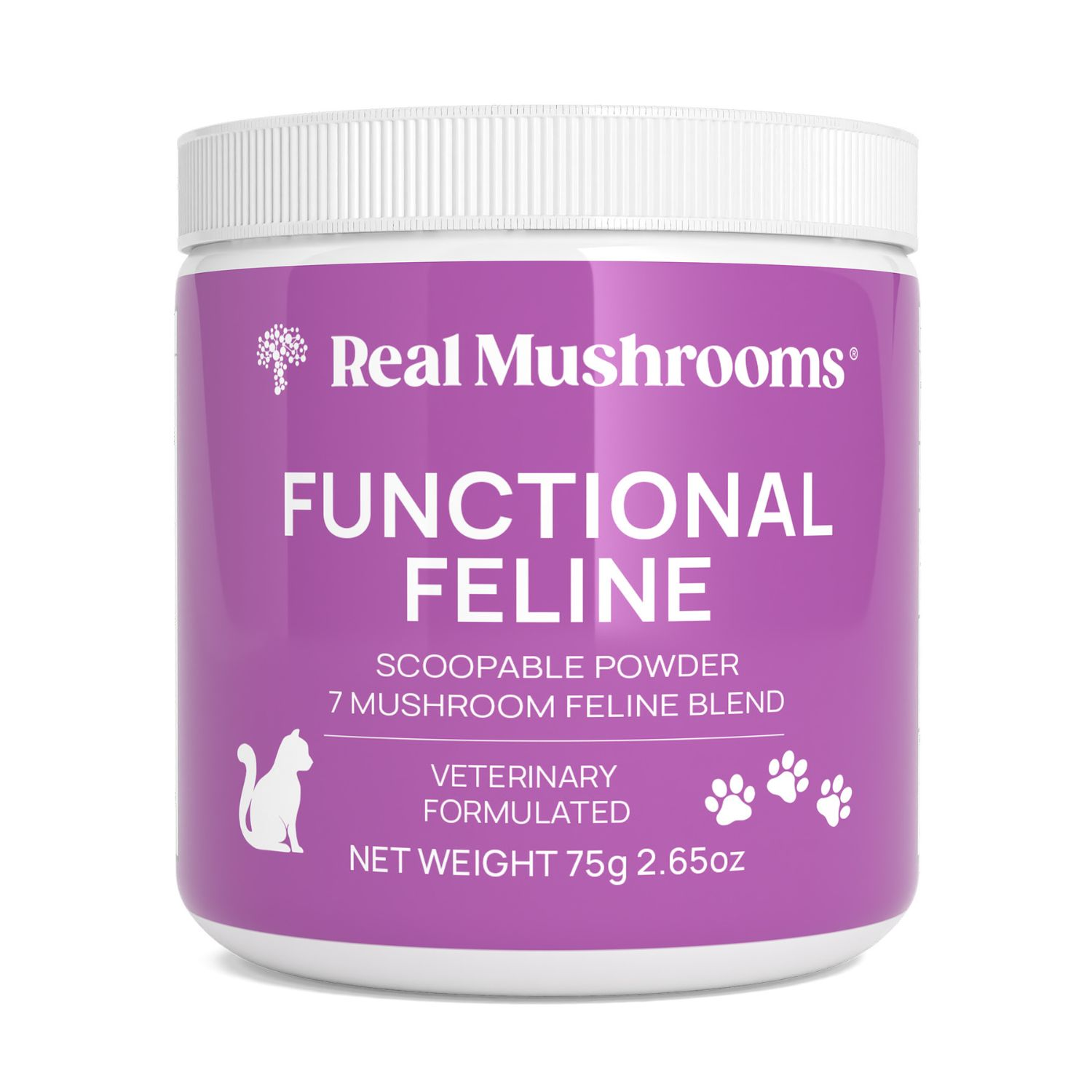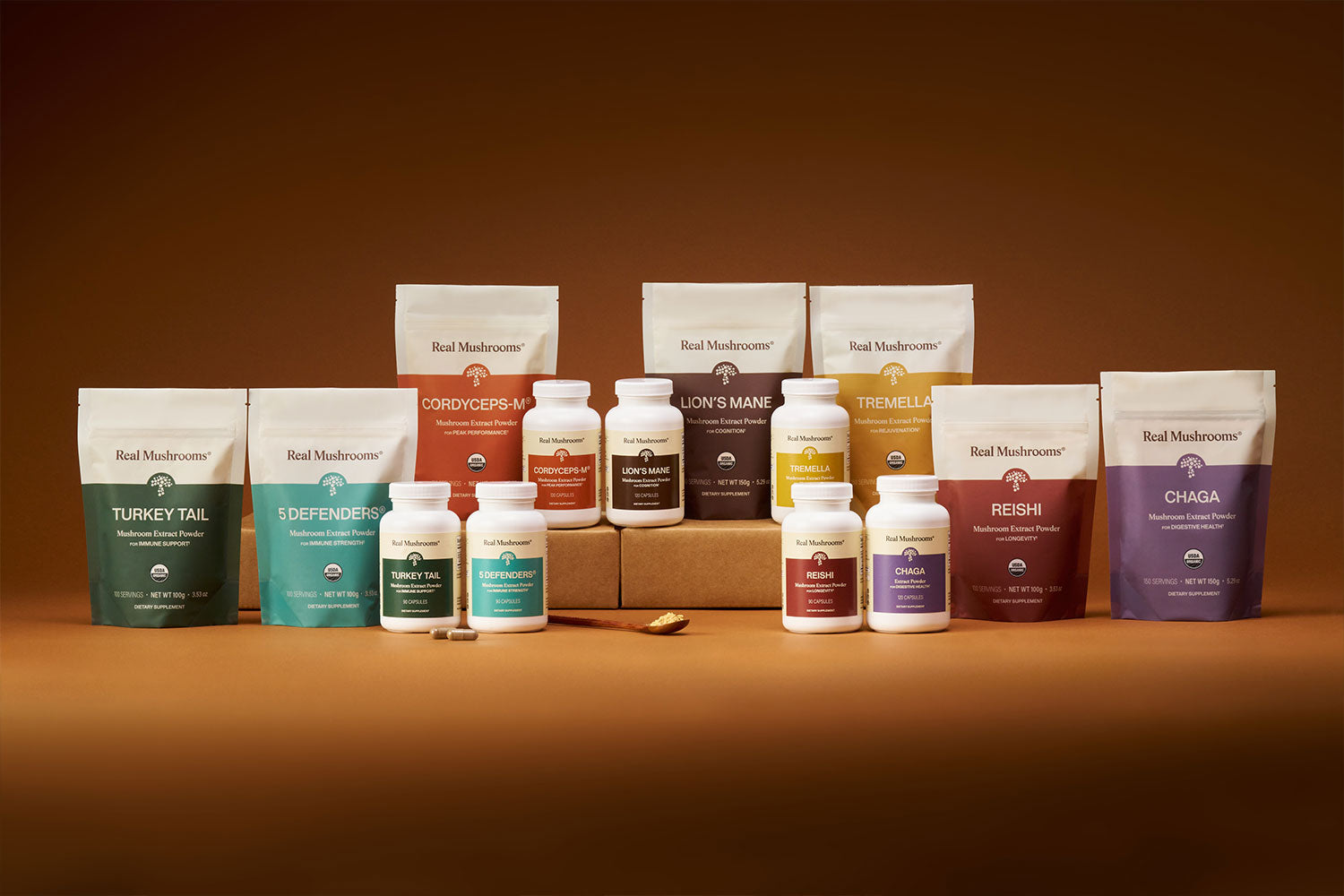Maitake Mushroom Benefits: A Natural Boost for Health
12 minute read
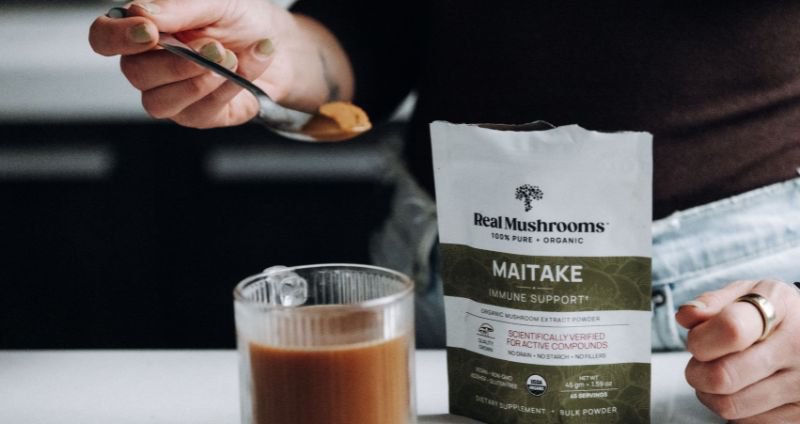
Maitake mushrooms, scientifically known as Grifola frondosa, are a type of polypore functional mushroom native to northeastern Japan and North America.
These mushrooms, often referred to as "hen of the woods" due to their feathered appearance, have been celebrated for centuries in traditional Eastern medicine for their potential health benefits. In recent years, modern science has begun to substantiate these claims, revealing various health benefits associated with maitake mushrooms.
This article will delve into the numerous health benefits of maitake mushrooms. These edible mushrooms are believed to support overall well-being, including immune system support, supporting heart health, and maintaining normal blood sugar levels.
In This Article
- Origin and Cultural Significance of Maitake Mushrooms
- Nutritional Profile of Maitake Mushrooms
- Health Benefits of Maitake Mushrooms
- Potential Side Effects and Considerations
- Why the Real Mushrooms' Maitake Mushroom Extract Stands Out
Origin and Cultural Significance of Maitake Mushrooms
Here are some interesting facts about the origin and cultural significance of maitake mushrooms:
- Historical Use: Legend has it that feudal lords rewarded their subjects generously for prime maitake mushrooms, offering an equivalent weight in silver.
- Cultural Significance: In traditional Chinese medicine, maitake mushrooms are believed to balance the body’s energy and improve overall well-being. They are often used in herbal remedies to balance immune responses and promote longevity.
- Natural Habitat: Maitake mushrooms grow at the base of oak, elm, and maple trees. They thrive in the temperate forests of Japan, China, and North America. These edible mushrooms prefer the cool, moist conditions found in these regions. <1>
Like other mushrooms, maitake mushrooms are valued for their historical and cultural significance and many potential health benefits. They are packed with essential nutrients and bioactive compounds that can support overall health.
Fun Fact: The name “maitake” translates to “dancing mushroom” in Japanese. According to folklore, people would dance with joy upon finding these functional mushrooms in the wild due to their incredible health benefits and rarity. <2>

Nutritional Profile of Maitake Mushrooms
What nutrients are found in maitake mushrooms?
Maitake mushrooms are a nutritional powerhouse packed with various essential nutrients that may benefit your health in numerous ways. Here’s a closer look at what these amazing mushrooms have to offer:
Vitamins
Maitake mushrooms are rich in several B vitamins, including B1 (thiamine), B2 (riboflavin), B3 (niacin), and B5 (pantothenic acid). These vitamins play a crucial role in energy production, brain function, and maintaining healthy skin and hair. <3>
Maitake mushrooms also contain high amounts of vitamin D2, which plays a role in bone and muscle health, and small amounts of vitamin C.
Minerals
These mushrooms are a good source of important minerals like potassium, which helps maintain blood pressure already within a normal range, and copper, which is important for general well-being, such as supporting healthy bones and nerves. <4>
Antioxidants
Maitake mushrooms contain powerful antioxidants such as beta-glucans. Antioxidants can help your body fight off free radicals, potentially reducing the risk of developing chronic conditions. <5>
Fiber
High in dietary fiber, maitake mushrooms can help regulate digestion and maintain a healthy gut. Fiber also helps you feel full longer, which can be beneficial for weight management. Other potential health benefits include maintaining regular bowel movements and maintaining gut health.
Protein
While not a complete protein source, maitake mushrooms provide a modest amount of protein, making them a great addition to a balanced diet, especially for vegetarians and vegans.
Here’s a quick snapshot of the nutritional content per 100 grams of maitake mushrooms:

Maitake mushrooms are not only delicious but also low in calories. As with other functional mushrooms that double as culinary mushrooms, such as lion’s mane and shiitake, maitake is a fantastic addition to any diet. If you’re watching your calorie intake, you’ll be pleased to know that maitake mushrooms are a guilt-free option.
Though these mushrooms can be cooked and eaten, many find the supplement or extract powder form convenient for consistent intake. Real Mushrooms' extraction process helps to concentrate beneficial compounds like beta-glucans and vitamins.
Imagine This: Maitake mushrooms can grow up to 3 feet wide and weigh as much as 50 pounds!
Health Benefits of Maitake Mushrooms
Immune System Support
Maitake mushrooms are often celebrated for their potential health benefits for boosting the immune system. This is largely due to their rich content of bioactive compounds, such as Maitake D fraction and ergothioneine, that help support healthy immune markers
Maitake D fraction has the potential to stimulate the activity of natural killer cells and T-cells, which are essential in immune response.
Here’s how the dancing mushroom may support your immune health:
Beta-Glucans
Maitake mushrooms are packed with beta-glucans, which are natural polysaccharides known to enhance immune function. These beneficial compounds can help activate various immune cells, such as macrophages and natural killer cells, which play a crucial role in supporting a healthy inflammatory response. <6>
Antioxidants
These mushrooms are also a good source of antioxidants, which can help your body fight off free radicals. They were used in traditional medicine for this purpose. By reducing oxidative stress, antioxidants can help maintain a healthy immune network.
Adaptogenic Properties
Maitake mushrooms are considered adaptogens, meaning they help the body adapt to stress and maintain balance. Stress can weaken the immune system, so incorporating adaptogens like maitake mushrooms into your diet is believed to support immune health. <7>
To experience the full extent of benefits, consider taking these functional mushrooms in supplement form or powder form, as they contain higher concentrations of nutrients.
Antioxidant Effects
Chronic inflammation can impair immune function, but maitake mushrooms are known for their apparent ability to support a healthy inflammation response. This, in turn, supports a healthier immune response. <8>
Did You Know? Maitake mushrooms contain alpha-glucan, which is usually associated with providing balanced energy and supporting digestive health in traditional Chinese medicine.

Maitake Mushrooms and Malignant Growths
The Maitake functional mushroom has been gaining attention for its potential to support the body's defenses against malignant growths.
These fascinating fungi contain a unique compound called beta-glucan—a water-soluble extract—believed to support the body's ability to manage malignant growths. Here’s a closer look at how maitake mushrooms might help:
Boosting the Immune System
Maitake mushrooms are known to enhance the defense system. A well-functioning immune network is important for overall health and may play a role in the body's natural defenses against malignant growths.
A study conducted by Memorial Sloan Kettering Cancer Center investigated the effects of maitake D-fraction on patients with advanced malignant growths on the breasts. The study found that maitake extract enhanced the production of interleukin-2 and T cells, which are critical components of the body's immune response <9>.
Enhancing the Effectiveness of Immune Therapies
There is evidence that maitake mushrooms can improve the effectiveness of conventional therapies against malignant growths <12>.
Two studies reported that D-fraction beta-glucan found in maitake mushrooms appeared to support the body's natural processes in managing abnormal cell growth in mice. A polysaccharide derived from Grifola frondosa (maitake) mushrooms demonstrated potential in promoting healthy cellular functions while supporting immune function in the host. <10> <11>
Maitake mushrooms might help individuals achieve better outcomes by potentially making abnormal cells more susceptible to these therapies.
Blood Sugar Support
Maitake mushrooms have been gaining attention for their potential to help maintain balanced blood sugar levels, making them a popular choice for those looking to support their overall health naturally.
Maitake mushrooms contain a unique polysaccharide called beta-glucan, known for its potential to help maintain normal blood sugar levels by supporting insulin sensitivity. When your body uses insulin more effectively, it can better manage blood sugar spikes and dips.
Maitake mushrooms may also help maintain blood sugar levels that are already within a healthy range. They contain amino acids such as alanine and leucine that can help maintain balanced blood glucose levels.
A study in "The Journal of Pharmacy and Pharmacology" found that maitake mushroom extract kept blood glucose levels steady in rats with high blood sugar by enhancing insulin sensitivity and promoting glucose uptake by cells <13>.
Another study demonstrated that maitake extract helped maintain steady blood sugar levels in human subjects with blood sugar conditions <14>.
Cardiovascular Health
Maitake “hen of the woods” mushrooms may support cardiovascular health, making them a potentially beneficial addition to a heart-conscious diet.
They are believed to help maintain healthy blood pressure that’s already within a normal range by providing essential nutrients and bioactive compounds that may support vascular function and contribute to overall heart health.
Additionally, maitake mushrooms are thought to play a role in promoting healthy lipid levels by potentially influencing the body's absorption and excretion processes. The potential health benefits include maintaining artery health and supporting the body’s natural defenses against factors that contribute to arterial plaque buildup. <15>
Weight Management
Maitake mushrooms may also aid in weight management. They are low in calories, high in fiber, and contain bioactive compounds that can influence metabolism.
A study found that Grifola frondosa (maitake) extract significantly reduced fat accumulation and improved healthspan in C. elegans. <16>
The study indicated that these effects were mediated through the activation of the DAF-16/FOXO and SKN-1/NRF2 signaling pathways, which are known to regulate stress responses, longevity, and metabolism. This suggests that maitake mushrooms might influence similar metabolic pathways in humans, making them a beneficial addition to a weight management regimen. <16>

Bone Health
Maitake mushrooms are a good source of vitamin D, which is essential for bone health. Vitamin D helps the body absorb calcium, maintaining strong and healthy bones.
Digestive Health
The high fiber content in maitake mushrooms may support digestive health and contribute to a balanced gut microbiome. Fiber is believed to assist in maintaining regular bowel movements and may help relieve occasional constipation.
Skin Health
Maitake mushrooms are thought to contain antioxidants that may help protect the skin from oxidative stress, which could potentially support healthy skin aging and contribute to overall skin wellness.
Highlight: Maitake mushrooms are often recognized for their potential immune-supporting properties, attributed to their rich content of bioactive compounds like beta-glucans and antioxidants. These “hen of the woods” mushrooms are also believed to support cardiovascular health, help maintain healthy blood sugar levels, promote bone health, and contribute to digestive and skin health, making them a versatile addition to your diet.

Potential Side Effects and Considerations
Maitake mushrooms are generally considered safe for most people and offer a range of health benefits. However, like any food or supplement, they can have side effects for some individuals. Here are a few things to keep in mind:
Digestive Issues
Some people may experience mild digestive discomfort, such as gas or bloating, when they first start consuming maitake mushrooms. This is usually temporary and can be minimized by starting with a small amount and gradually increasing the intake of the edible mushroom.
Allergic Reactions
Although rare, some individuals may be allergic to maitake mushrooms. Symptoms of an allergic reaction can include itching, swelling, and difficulty breathing. If you experience any of these symptoms, it’s important to stop consuming the mushrooms and consult a healthcare professional.
Blood Sugar Levels
Maitake mushrooms have been suggested to help maintain healthy blood sugar levels that are already within normal range, which may benefit those looking to support their overall wellness.
However, if you are managing blood sugar levels with medication, it’s important to monitor your levels closely, as changes in diet can influence these levels. Always consult your healthcare provider before incorporating maitake mushrooms into your diet, especially if you are on medication for blood sugar management.
Interactions with Medications
Like other mushrooms, maitake mushrooms can interact with certain medications, such as blood thinners and immunosuppressants. If you are on any medication, it’s a good idea to talk to your healthcare provider before incorporating maitake mushrooms into your routine.
Pregnancy and Breastfeeding
There is limited research on the safety of maitake mushrooms during pregnancy and breastfeeding. While they are generally considered safe, it’s best to consult a healthcare professional to ensure they are appropriate for your specific situation.
Why the Real Mushrooms' Maitake Mushroom Extract Stands Out

Maitake “hen of the woods” mushrooms are a fantastic addition to your diet, offering a range of health benefits, from boosting your immune system to helping manage weight and blood sugar levels already within a normal range.
For those interested in incorporating maitake mushrooms into their routine, Real Mushrooms offers high-quality, organic mushroom extract capsules, powders, and blends. What sets Real Mushrooms apart is our commitment to using only 100% functional mushroom (fruiting body) extracts in our products.
The mushroom is rich in active compounds and nutrients. Unlike other brands that may use mycelium or other parts of the fungi, which are grown on grain that end up in your product, Real Mushrooms focuses solely on the mushroom (fruiting body).
The mushroom contains higher concentrations of bioactive compounds, which are responsible for many of the health benefits attributed to maitake and other functional mushrooms. <17>
By choosing Real Mushrooms, you ensure that you get a product with the maximum potency and efficacy derived from the most nutritionally valuable part of the fungi; the fruiting body.
Add maitake mushrooms to your daily routine and support your journey toward a balanced lifestyle. Whether you prefer maitake mushroom powder or the convenience of maitake capsules, both offer an easy way to enjoy the benefits of these natural ingredients. Explore our wide range of 100% mushroom products!

References:
- Daegan, C. (2020) Forest Journal: A Hen worth hunting for, Forest Society. Available at: https://www.forestsociety.org/forest-journal-column/forest-journal-hen-worth-hunting (Accessed: 20 June 2024).
- Maitake. (no date). PeaceHealth. Available at: https://www.peacehealth.org/medical-topics/id/hn-2127000 (Accessed: 20 June 2024).
- Cleveland Clinic (2024) A close look at all the B vitamins, Cleveland Clinic. Available at: https://health.clevelandclinic.org/b-vitamin-benefits (Accessed: 20 June 2024).
- Fooddata Central Search Results. (no date). FoodData Central. Available at: https://fdc.nal.usda.gov/fdc-app.html#/food-details/169403/nutrients (Accessed: 20 June 2024).
- Vetvicka, V. (2014) Immune-enhancing effects of Maitake (Grifola frondosa) and Shiitake (Lentinula edodes) extracts, Annals of Translational Medicine. Available at: https://atm.amegroups.org/article/view/3394/html (Accessed: 20 June 2024).
- Vetvicka V, Vetvickova J. Immune-enhancing effects of Maitake (Grifola frondosa) and Shiitake (Lentinula edodes) extracts. Ann Transl Med. 2014 Feb;2(2):14. doi: 10.3978/j.issn.2305-5839.2014.01.05. PMID: 25332990; PMCID: PMC4202470.
- Maitake mushroom benefits: This mushroom transforms health (no date) MycoMedicine. Available at: https://mycomedicine.org/maitake-mushroom-benefits-this-mushroom-transforms-health/ (Accessed: 20 June 2024).
- Camilleri E, Blundell R, Baral B, Karpiński TM, Aruci E, Atrooz OM. Unveiling the full spectrum of maitake mushrooms: A comprehensive review of their medicinal, therapeutic, nutraceutical, and cosmetic potential. Heliyon. 2024 Apr 26;10(9):e30254. doi: 10.1016/j.heliyon.2024.e30254. PMID: 38707308; PMCID: PMC11068609.
- Deng, G., Lin, H., Seidman, A., Fornier, M., D'Andrea, G., Wesa, K., Yeung, S., Cunningham-Rundles, S., & Vickers, A. (2009). A phase I/II study of a polysaccharide extract from Grifola frondosa in breast cancer patients: immunological effects. Journal of Cancer Research and Clinical Oncology, 135(9), 1215-1221.
- Adachi, K., Nanba, H., & Kuroda, H. (1988). Potentiation of host-mediated antitumor activity in mice by beta-glucan obtained from Grifola frondosa (Maitake). Cancer Research, 48(21), 5995-6001.
- Nanba, H. (n.d.) Maitake D-fraction: Healing and preventive potential for cancer , Health & Environmental Research Online (HERO). Available at: https://hero.epa.gov/hero/index.cfm/reference/details/reference_id/7334015 (Accessed: 20 June 2024).
- (2021) Mycomedicinals (Mushrooms) for Cancer. rep. Department of Family Medicine and Community Health, pp. 2–2. Available at: https://www.jstage.jst.go.jp/article/jos/62/12/62_1049/_pdf
- Hong, L., Xun, M., Wutong, W., & Lingyi, L. (2007). Hypoglycemic effect of Grifola frondosa (Maitake) polysaccharides: relationship between structure and activity. The Journal of Pharmacy and Pharmacology, 59(10), 1495-1500.
- Kubo, K., Aoki, H., Nanba, H., Mizuno, T., & Harada, T. (1994). Maitake mushrooms (Grifola frondosa) improve glucose tolerance and insulin sensitivity in KK-Ay mice. Diabetes Care, 17(10), 1050-1052.
- Sato, M. (2013) ‘Effect of Dietary Maitake (Grifola frondosa) Mushrooms on Plasma Cholesterol and Hepatic Gene Expression in Cholesterol-fed Mice’, Journal of Oleo Science, 62(12), pp. 1049–1058.
- Aranaz P, Peña A, Vettorazzi A, Fabra MJ, Martínez-Abad A, López-Rubio A, Pera J, Parladé J, Castellari M, Milagro FI, González-Navarro CJ. Grifola frondosa (Maitake) Extract Reduces Fat Accumulation and Improves Health Span in C. elegans through the DAF-16/FOXO and SKN-1/NRF2 Signalling Pathways. Nutrients. 2021 Nov 7;13(11):3968. doi: 10.3390/nu13113968. PMID: 34836223; PMCID: PMC8620745.
- Berger RG, Bordewick S, Krahe NK, Ersoy F. Mycelium vs. Fruiting Bodies of Edible Fungi-A Comparison of Metabolites. Microorganisms. 2022 Jul 8;10(7):1379. doi: 10.3390/microorganisms10071379. PMID: 35889098; PMCID: PMC9315710.
